


GivinG Our Children the FOundatiOn FOr a happy liFe For the Informed Family Spring 2012 The Father’s Role Budgeting for Families Parenting tiPs top10 Birth Inspired helpFul homewoRK www.bermudaparentmagazine.com H ints Myths Facts Breastfeeding Free Best Value $ 6.50 vs.



















On the COver
Photography: Antwan Albouy, Chic Studio
Main photo: Ralph & Julie Richardson
Darien, Stephanie & Imani Douglas Sri Rajeswaran & Seetha Srihara
Bottom Left Photo: Mark, Liz, Harry, Freddie & Grace Twite
Bottom Right Photo: Will, Frances, Sam & Jasper McCallum
32 Helpful Homework Hints Helping your child to stay on track with their homework.
34 Sporting Chance Choosing the right sport can give your child a winning start in life!

37 Parent Connect The middle school transition- staying involved!
38 Giving Our Children the Foundation
46 Balancing Act How are they able to maintain their focus and give so much of themselves?
48 The Father’s Role The importance of fatherhood and tips for improvement.



2 ||| www.bermudaparentmagazine.com Pregnancy 8 Tips for a Smooth Labour & Delivery Giving birth in the hospital, what you need to know! 10 Breastfeeding Myths vs. Facts The real deal on breastfeeding. 12 Family Health Begins with Family Planning Birth 14 Inspired Birth Removing the myths and fears so that you can search within to find your birthing instincts! 16 New Arrival Welcome Fletcher to the World Baby 18 Recognizing the Signs of Autism Knowing what to look for can make all the difference. 20 Baby Wearing: Traditional Wisdom for Modern Wellness An old tradition revived that has benefits for you and your baby. Little Ones 22 Supporting Young Readers Preparing for a lifetime of reading. 24 Tips for a Fun and Stress Free Bedtime Tired of fighting over bedtime with your kids, see if these tips will help! 26 Meal Planning Taking the headache out of what’s for dinner! Big Kids 28 The Challenges of Boys & Literacy 30 Parents are Key to Kids’ Mathematical Development Seeing math come alive in everyday situations can instill an unrealized passion in your kid.
Tweens
Teens
&
a Happy Life Lifestyle 40 Top Ten Parenting Tips 42 Developmental Disability Explained 44 Budgeting for Families Dad’s Corner
for
In every Issue Letters to the Editor . . . . . . . . . . . . . 5 Bermuda Parent Families . . . . . . . . . 6 Godpa Speaks . . . . . . . . . . . . . . . 50 Rising Stars . . . . . . . . . . . . . . . . . 52 Finds & Favourites . . . . . . . . . . . . 54 Parent Directory 56
Contents

BREAST Radiologist Call us: 441-236-1001 | Visit Us: 46 Point Finger r d. Paget d V 04 | www.c A nc ER . B m call us today. As parents, we know how dependent children are on a mother’s health. Breast health is critical. Mammography is simple. Our Breast Health Services bring together a highly specialized team dedicated to providing you with comprehensive screening and diagnostic capabilities. Bermuda Cancer and Health Centre – a specialist approach to patient care. Specialist doctors, lower costs, after work and Saturday appointments and lots of parking. Convenient Location immEdiATE Appointments Specialist AppRoAch dR. dAvid GREEn onSitE
Publisher & Editor
Katrina Ball
Business Consultant
Vic Ball
Advertising Sales
Shawnette Smith, Marguerita Carter, Katrina Ball
Website
Advanced Services
Creative Services
Total Marketing & Communications Ltd.
Writers and Contributors
Fiona Dill, Dr. Cheryl Peek-Ball, Dr. Frank Serafini, Melissa Cameroon Morrill, Chris Gibbons, Sara Westhead, Dr. Kimberley Mills, Dr. Bari Fenster, Lt. Col. Edward Lamb, Resheema Swan, Necheeka Trott, Darnell Wynn, Martha Dismont, Amy Smith, Dana Obleman and Godpa
Contributing Photographers
Becky Spencer, Antwan Albouy, Sacha Blackburne, Theresa Millet and Sharon Wilson
Bermuda Parent Magazine is published four times a year. Reader correspondence, photo submissions and editorial submissions are welcome. We reserve the right to edit, reject or comment editorially on all material contributed. No portion of this magazine maybe reproduced without express written consent of the publisher. The opinions expressed by contributors or writers do not necessarily reflect the opinions of this magazine. Distribution of this product does not constitute an endorsement of the products or services herein.
Contact
Hello
Welcome to the first issue of Bermuda Parent Magazine!
First, I would like to give thanks to God for allowing the successful launch of Bermuda Parent Magazine and to my husband for encouraging me and assisting in so many ways. I look forward to seeing Bermuda Parent Magazine become the Premier Resource for all parenting needs.The magazine will be a quarterly issue with a complementing website (www. bermudaparentmagazine.com). The magazine idea was conceived after my frustration with trying to find products and services geared to my child.

Out of that frustration, the vision to compile all information, resources, activities and products in one easy place was born. Bermuda Parent Magazine has become that reality.
The spring issue has one common thread throughout and that is “Parents are Key”. We impact our children and youth, for good or bad, by our actions and even our inaction. Sometimes, the very traits we dislike in our children, are the very ones we possess. Children are excellent at discerning what we do versus what we say. Research has stated that the first 3 years of life impacts our children the most. This period will define what propensities and characteristics they will possess throughout their lifetime. Becoming a parent is an exciting and scary time for us because it forces us to grow and change who we are - be it for the betterment and benefit of our children, or for the detriment of ourselves and our children. Bermuda Parent Magazine looks forward to interacting with you and providing you with resources, information, and activities that are available throughout our Island home.
Katrina Ball, Editor and mom to Elijah three, and Enoch 10 weeks

4 ||| www.bermudaparentmagazine.com
editor’s note |||
us
by Martin Printing Co. Inc. View our: • Articles • Photo Gallery • Calendar Events • Directory
Gain more exposure advertise with Bermuda Parent Magazine Advertise your camp, business, product or service with WWW . Magazine . com
Email: info@bermudaparentmagazine.com Tel: 504-2937 Printed
Katrina Ball
We want to read your emails and letters, but there are so many other ways you can be part of the Bermuda Parent community

Join us on Facebook – Find us under Bermuda Parent Magazine and join our community. Share your thoughts and comments. Be informed by our calendar of events, directory and various nuggets sent out.
Sign up for our E-newsletter – Log onto bermudaparentmagazine.com for details. Receive our monthly newsletter about what’s new and upcoming on the website or magazine. See editor’s thoughts about parenting. Email us your favorite product, resource, tips and tricks that you could not do without and we’ll share it in the next newsletter.
Are you an avid Twitter user?
Follow us at twitter.com/bermudaparentmagazine


Happy Birthday to...
Phoebe Foulds
Best wishes for a Happy 8th Birthday Phoebe, here’s a reminder of sunny days in Bermuda love from Mommy and Daddy.

Jan 24
Nikholas
Conrad Roach
May you be blessed with wisdom as you navigate your teenage years. From Mommy, Daddy, Brianna and Adrian.


Feb 5
March 11
Bermuda Parent ||| 5
Birthday to my sweet Kory (aka Mr. Sunshine and Mr. Personality.)
God’s hedge of protection forever
you as you
your
Kory you are destined for
love
of
in
Kory Jalen Niko Hyde
Happy
May
surround
go through life spreading
sunshine and bringing joy to all of our lives.
greatness – speak it, believe it and watch as it comes to pass. We
you more than all the grains
sand
the world.
Letters ||| Celebrate your child’s birthday! Do you have an April/May/June baby? Email us at: editorial@bermudaparentmagazine.com with a photo and details.
Submit your letter to editorial@bermudaparentmagazine.com
We would love to hear your comments, news and views on articles in Bermuda Parent Magazine or on our website. Feel free to tell us about your life as a parent or your child, and drop us a line.








Parent Families See YOUr FAMILY here! Show off your fabulous family! Send in your photo and name of your family to submitphotos@bermudaparentmagazine.com
Bemuda
Antoine & Harmony
Coleman, Lisa, Kaleb
Nikeisha, Marshall, Ahzaire Natasha, Senait, Dante
Adriana, Antonio, Alisha Riley
Jen, Kyla
Tania, Nathan, Kennedy & Mackenzie
Pregnancy


Make your admission to the hospital smooth, simple and easy
After your first visit to a healthcare provider for prenatal care, your physician will notify the maternity ward that you are expecting. A letter will then be sent from the hospital to your doctor for you to collect at your next appointment.
“We want pregnant women to know that as soon as they receive this letter, they should contact the hospitals Admission Department,” advises Christine Virgil, Clinical Director of Maternal/Child Services at KEMH. “The hospital needs to have a record of every pregnant woman’s due date, along with her personal contact information, previous medical history, the name of her physician and the details of her insurance. The last thing a woman wants when she goes into labour is to be worried about whether the maternity team know which doctor to call or what medical challenges she may be facing.”
Pregnant women are urged to contact the Admissions Department early in their pregnancy so the hospital can admit them quickly and efficiently when they do go
Tips &
for a Smooth
Labour Delivery
Submitted by the Maternity Team at King Edward VII Memorial Hospital
Preparing to have a baby is an important and exciting time for a family. The maternity team at King Edward VII Memorial Hospital (KEMH) has these suggestions for making your labour and delivery experience safe, comfortable and positive.

into labour. Some women think they can wait until they are in the late stages of pregnancy but doing this as soon as you receive the letter will avoid problems if you should need to be admitted earlier than your due date. Contact the Admissions Office at 239-1446.
Learn about labour and delivery at prenatal birthing classes
“Taking birthing classes is an excellent way to prepare for labour and delivery and learn what to expect during childbirth,” says Janet Wheelan, Clinical Manager for Maternity and Special Care Baby Unit.
The maternity ward at the hospital offers classes, open to expectant mothers and fathers, designed and taught by the same midwives who will be with you when you give birth. Class discussions include body changes, breastfeeding, relaxation techniques and the process of childbirth. Most importantly, prenatal classes contribute to a more positive birth experience.
Classes are offered at the hospital on Tuesday evenings over a four-week period.
To register, call Francine Burrows at 239-1682 or email francine.burrows@bhb.bm Light refreshments are served at the classes.
Don’t be afraid to ask for help
The maternity team at the hospital is available around the clock to answer your questions about pregnancy, labour, delivery, baby care and breastfeeding.
“Our nurses are happy to address your concerns and provide the information you need to feel safe and comfortable during your pregnancy or to feel more confident and assured as a new mother,” adds Ms. Wheelan. “No questions are too foolish to ask and women don’t need to wait until business hours if they have concerns and need answers. We are always here to help and support women throughout their pregnancy, after they deliver and during the early weeks of new parenthood.”
Call 239-1325 if you need assistance, guidance, advice or reassurance.
8 ||| www.bermudaparentmagazine.com


Myths
Facts vs.
Some of the most common breastfeeding myths are explained below. If you have further questions about breastfeeding, contact La Leche League of Bermuda at 236-1120 or at islandgirl@northrock.bm.
The chances are you have heard at least one breastfeeding myth . Unfortunately, they can make a mother question herself and her ability to breastfeed, feel inadequate, or imagine that a problem exists when it does not . When a mother is armed with accurate knowledge and reasonable expectations about breastfeeding, she is much more likely to have confidence in her breastfeeding ability and enjoy her breastfeeding relationship with her baby .
Myth 1: Many women do not produce enough milk.
Fact: The vast majority of women produce more than enough milk. Indeed, an overabundance of milk is common. Most babies that gain too slowly, or lose weight, do so not because the mother does not have enough milk, but because the baby does not get the milk that the mother has. The usual reason that the baby does not get the milk that is available is that he is poorly latched onto the breast. This is why it is so important that the mother learn or be shown, on the first day, how to latch a baby on properly.
Myth 2: It is normal for breastfeeding to hurt.
Fact: Though some tenderness during the first few days is relatively common, this should be a temporary situation which lasts only a few days and should never be so bad that the mother dreads nursing. Any pain that is more than mild is abnormal and is usually due to the baby latching on poorly. A new onset of pain when things have been going well for a while may be due to a yeast infection of the nipples (called “thrush”). Limiting feeding time does not prevent soreness.
Myth 3: A baby should be on the breast 20 (or 10, 45, etc) minutes on each side.
Fact: The length of a breastfeeding session should be determined by the baby’s interest and response. Some babies need more time than others; some are more efficient than others. If the baby is latched on correctly, there is no need to limit the length of his feedings. However, if a baby has a shallow latch (or there are issues making latching difficult), he may need to “nurse all day” to consume enough milk. A baby can transfer milk more efficiently if he is latched on properly.
Myth 4: A mother only needs to nurse four to six times a day to maintain good milk supply.
Fact: Research shows that when a mother breastfeeds early and often, an average of 9.9 times a day in the first two weeks, her milk production is greater, her infant gains more weight and she
continues breastfeeding for a longer period. Milk production is related to feeding frequency and milk supply declines when feedings are infrequent or restricted. Eight to twelve nursing sessions per 24 hours are recommended for a newborn baby, but feedings are not always spaced at regular intervals. Some babies “cluster nurse” which means they nurse very often for a few hours, then rest for several hours.
Myth 5: There is no way to know how much breastmilk the baby is getting.
Fact: There is no easy way to measure how much the baby is getting, but this does not mean that you cannot know if the baby is getting enough. The best way to know that the baby is actively drinking at the breast for several minutes at each feeding is, adequate weight gain and number of dirty diapers. For further details, see sidebar “Signs Your Baby is Getting Enough Milk”.
Myth 6: A breastfeeding mother should space her feedings so that her breasts will have time to refill.

Fact: A lactating mother’s body is always making milk. Her breasts function in part as a “storage tank,” some holding more than others. The emptier the breast, the faster the body makes milk to replace it; the fuller the breast, the more production of milk slows down. If a mother consistently waits until her breasts “fill up” before she nurses, her body may get the message that it is making too much and may reduce total production.
Myth 7: Babies get all the milk they need in the first five to ten minutes of nursing.
Fact: While many older babies can take in the majority of their milk in the first five to ten minutes, this cannot be generalized to all babies. Newborns, who are learning to nurse and are not always efficient at sucking, often need much longer to feed. The ability to take in milk is also subject to the timing of the mother’s let-down response. Rather than guess, it is best to allow baby to suck until they shows signs of satiety such as self-detachment and relaxed hands and arms.
10 ||| www.bermudaparentmagazine.com
Pregnancy |||
BREASTFEEDING
Myth 8: Breastfeeding mothers must always use both breasts at each feeding.
Fact: It is more important to let baby finish the first breast first, even if that means that he doesn’t take the second breast at the same feeding. The richer, higher-fat hind milk is accessed gradually as the breast is drained. Some babies, if switched prematurely to the second breast, may fill up on the lower-calorie foremilk from both breasts rather than obtaining the normal balance of foremilk and hind milk, resulting in infant dissatisfaction, abdominal distress, and/or poor weight gain.
Myth 9: The mother should not be a pacifier for the baby.
Fact: Comforting and meeting sucking needs at the breast is nature’s original design. Pacifiers (dummies, soothers) are literally a substitute for the mother when she can’t be available. Breastfeeding is designed to provide more than nutrition: nursing also provides a baby with security and comfort, positive hormonal releases, bonding and attachment, oral-facial and visual development, avoidance of nipple confusion, and stimulation of an adequate milk supply.
Myth 10: If the mother has an infection she should stop breastfeeding.
Fact: With very few exceptions, the mother’s continued breastfeeding will actually protect the baby. By the time the mother has symptoms, such as a fever, cough, vomiting, diarrhea, rash, etc, she has likely already given the baby the infection. If the baby does get sick, he will be less sick if the mother continues breastfeeding. Also, mastitis (breast inflammation), though painful, is not a reason to stop breastfeeding. Mastitis will worsen if milk is not removed from the affected breast, so frequent nursing is part of the treatment.
Resources:
Signs Your Baby is Getting Enough Milk
• Weight gain. Your baby returns to his birth weight by two weeks. An average weight gain after that is 1 ounce (30 g) per day until around 4 months of age.
• Diaper output. By the middle of his first week of life (day 3-4), your baby should be having at least 3 bowel movements a day the size of the “okay” circle you make with your thumb and forefinger. It is only after 6-8 weeks that some babies switch to less frequent but larger bowel movements
• Your breasts. Your nipples are comfortable and your breasts noticeably soften after most nursing sessions.
• Nursing behavior. Usually your baby has open eyes when the feed starts, has periods of slow sucks with regular pauses which indicate the swallowing of milk (may be audible), and falls asleep or otherwise appears content after most nursing sessions.
• Baby’s appearance. Your baby is alert and active, appears healthy, has good color, firm skin, and is growing in length and head circumference.
Common Breastfeeding Myths from La Leche League International, http://www.llli.org/NB/LVAprMay98p21NB.html
Some Breastfeeding Myths, Handout #11, by Dr. Jack Newman, http://www.kellymom.com/newman/11some_bf_myths.html

Bermuda Parent ||| 11
La Leche League provides information, encouragement and support for women choosing to nurse. Attend Our Free Series Meetings Second Saturday of each month at 10:30am First Floor Conference Room King Edward VII Memorial Hospital For breastfeeding help, call 236-1120, email islandgirl@northrock.bm or visit us on Facbook at La Leche League of Bermuda Did you know breastfeeding challenges can be overcome with proper assistance?
Family Health Begins with Family Planning

 by Cheryl E. Peek-Ball
by Cheryl E. Peek-Ball
It may seem counter-intuitive, but the best way to assure a healthy family is to postpone having a family at all, until such time as circumstances are favorable. In an ideal world, all babies would enter the world surrounded by a loving family, would be nurtured by attentive parents and an extended family united in their commitment to protecting, educating and supporting a child to maturity. Sometimes this perfect scenario is a reality, but in too many instances, family circumstances are far from ideal.
Many babies are born into situations which make effective parenting a near impossibility. When the parents are still children themselves, have not completed their educations, and do not have secure employment, the demands of raising healthy children can be overwhelming. Even with a supportive extended family, such a situation stacks the cards against parents and children.
When a child is born into a situation where resources are limited and parents are stressed, the risk of poor outcomes in health, education and adult success rises sharply. There is an abundance of data in both the health and social disciplines which verify this fact. The Children’s Defense Fund, a private, non-profit organization based in Washington, DC, advocates on behalf of children, especially the most vulnerable children. In their moving report, Portrait of Inequality 2011, Black Children in America (www.childrensdefense.org), startling statistics are shared to make the points.
Children born to school-aged parents, born into single-parent households, or born to unemployed or inadequately educated parents, are at considerable risk for newborn or early childhood death, low birth weight, multiple health problems as well as learning and behavior problems. Their rates of school failure

or drop-out, unemployment, lifelong poverty, and even incarceration are two to three times higher than other children. Disproportionately, these poor outcomes affect black or minority children in the US and in Bermuda.
However, these correlations relate to all children. Poorly timed and unplanned pregnancies are correlated to poor outcomes for children and families of all races. When pregnancies are unplanned, and circumstances not supportive for parenting, children are not as healthy and do not perform as well in school or in life. So, knowing this, what can we all do about it? We can practice family planning.
Family planning is simply the act of preventing pregnancy through reliable methods until one wants to become a parent. For young and mature couples alike, this requires conscious
12 ||| www.bermudaparentmagazine.com
Birth |||
consideration and an honest discussion with ourselves and with our partners. We must ask ourselves complex and sensitive questions, and answer them honestly.
Ask yourself: Am I ready to be a parent now? What kind of life will I be able to offer my child? And one of the most important questions is; What am I doing to prevent becoming a parent before I am ready?

In Bermuda, as in much of the developed world, we are blessed to have good access to affordable family planning. Both counseling and contraceptives are readily available in our community. General practitioners (GP’s), gynecologists and the clinics at the Department of Health offer these services for the asking. With all the methods available to us, there are very few couples who cannot plan for pregnancy and time parenthood so that it suits their lifestyles.
Yet in Bermuda and the US, over 50 % of all pregnancies are unplanned, and the figure is even higher for younger mothers: 80- 90% of all teen pregnancies are unplanned and 60% of pregnancies in women 20-25 years are unplanned. These figures have not improved in the past two decades despite the wide availability and affordability of contraception. It appears, therefore, that the problem is not access to family planning methods but motivation to use them.
What can be done to promote family health through family planning? It will be important for each of us to encourage young people to consider the value of postponing parenthood until they are fully educated and employed; and just as important, until they are in a committed relationship that can provide a two-parent household for a child.
As we try to solve the multitude of social problems facing our community, it is timely to reflect on the importance of family planning in producing responsible, healthy citizens.(www.TheNationalCampaign.org)
To maximize the chances of the very best outcomes for our children we must plan. The old adage, “failing to plan means planning to fail”, applies in many respects to parenthood. Ask any parent.
Parenting is serious business, starting with sleepless nights but not ending with turbulent adolescence. In addition to abundant love, good parenting requires selfless devotion, maturity, organization and many resources. Needless to say, assuring all this is in place takes planning.
BIOGRAPHICAL STATEMENT
CHERYL PEEK-BALL, MD, MPH
Dr. Cheryl Peek-Ball became the Senior Medical Officer for the Department of Health in December 2009. Previously, she served the department as Medical Officer for Maternal Health & Family Planning for 19 years, beginning in 1990. Dr. Peek-Ball is originally from the United States where she received her medical and public health education. She obtained her Bachelor of Arts degree from Swarthmore College (PA) in 1979, Medical Degree from Jefferson Medical College of Thomas Jefferson University in Philadelphia in 1986, and Master of Public Health degree from the University of North Carolina at Chapel Hill in 2006.
Dr. Peek-Ball is married to Bermudian educator, Anthony Ball and they are the parents of two adult daughters, Chloe and Kelsey Ball. She is also an active member of the Baha’i Faith community.
Bermuda Parent ||| 13
Birth Inspired
by Melissa Cameron Morrill
The word inspired is derived from the words meaning “breathed upon” and often referred to artistic expression or creative endeavor. Although the word hasn’t been widely connected with childbirth in the past, it can be easy to see the connection after taking a deeper look. As we move into a new generation of women giving birth we are seeing many shifts in the world of childbirth. One of the major movements happening around the planet surrounding birth is the idea that women are taking the responsibility for their experiences back into their own hands. Some are choosing to bring birth into their homes and others are choosing to bring as much of their homes into the hospital. It seems our world is waking up to the idea that the way a woman feels during her labor and birth experience does in fact matter. After decades of not paying attention to how women feel during birth, we seem to be seeing a global shift happening.
As many hospitals begin to change the décor of the rooms to seem more home like, it has become obvious that people are paying attention to how a woman perceives her environment during childbirth.


An inspired birth is one that derives from within the laboring mother based on how she feels. Within moments of inspiration, we are often without reasoning, rationalizing or thinking. Inspiration usually hits a person just moments before a creative act is undertaken. This is very appropriate for a mother in labor as she is undergoing one of the most creative moments in life and that is the creation of a human being. When a birthing mother is trying to move through her labor using facts, statistics, research or any other thought-based ideas this can cause quite the struggle within her. It seems that the very act of birthing happens with very little or no uses of the intellectual self and more dominantly a feeling-based experience. This experience we call inspiration is filled with intuition, instincts and inner wisdom. These feelings that come out of nowhere can also be compared to the source where inspiration comes from. When an inspiration arises a magical moment is usually created.
Some of the greatest artists, authors, poets and other creative types are very familiar with inspiration. These people are often use the source of the current inspiration to guide in the creative outlets that result in the manifestation of beautiful work. In relation to childbirth, when a woman moves through her birth inspired, she is in a completely different state of being than if she were trying to think her way through it. She is more fluid, malleable and open as she maintains her full presence through each inspired moment. An inspired mother in labor is often on a planet of her own, letting her breath, her body and her entire self move with each contraction in any way that she feels led to go. She realizes that she is in the ultimate moment of creation as she is creating and bringing forth new life. Her inspiration comes without justification and explanation and often seems unreasonable and illogical. Just as the painter paints without logic, the inspired mother births the same way allowing the journey through birth arrive on its own time and in its own way. Just as the author allows the words to flow through, the inspired birthing mother moves throughout her labor allowing her baby to descend through her body. Just as the poet unfolds the poem in the dark of the night, the birthing mother feels her way into every sensation embracing the darkest corner of her soul welcoming the gift of life.
About the author:
14 ||| www.bermudaparentmagazine.com
Melissa Cameron Morrill is the mother of three little boys, founder of Pure Birth, LLC, founder of Natural Lullabies and free-lance writer residing in Tulsa, OK.
Don’t let birth just happen.
Prior planning and preparation are key to birth, breast-feeding and parenting skills. Knowing the options available allows for making informed choices.
Mindful Mothering offers:
• Childbirth Classes: Individual private classes and small group classes
• Refresher Class: Individual Birth Skill classes (preparing you specifically for the labour & birth)
• Birth Doula (Labor coach): Having a supportative person present who knows about birth can make all the difference both emotionally and physically

Tel. 441.504.2937
Email. katrina@mindfulmotheringbda.com
www.mindfulmotheringbda.com
Welcome to the world… Flet cher!
Melissa & Pete Logie are parents to Fletcher, 16 weeks
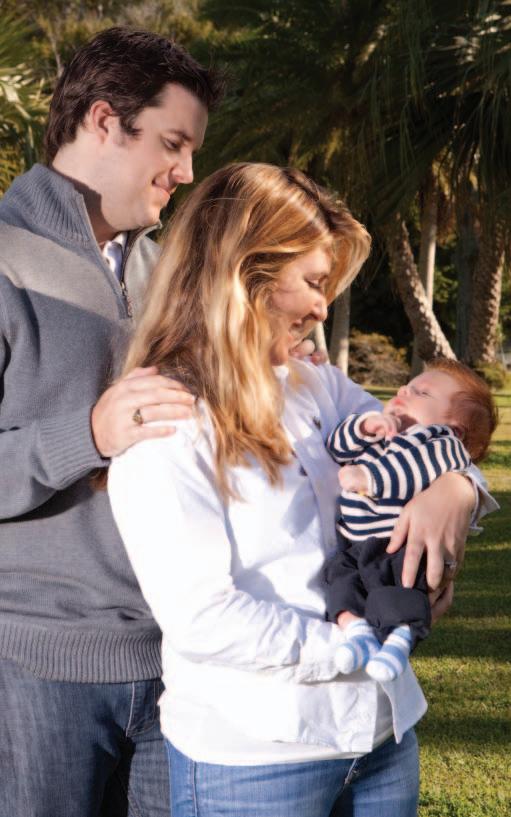
After getting back from our delayed honeymoon in Costa Rica (we went 4 ½ months after our wedding) Pete and I decided to start trying for a baby. We were lucky that after our first month of trying we were pregnant. It was an exciting time for us and we told our close family and kept the secret from everyone else until after our 12 week scan (was tough to do!). Neither one of us wanted to find out the sex of the baby. Pete affectionately named my bump ‘Gumnut’ after the hard woody fruit found on a Eucalyptus tree (fitting as Pete is Australian!). My pregnancy seemed to go quite fast and I had no complaints except for the hot humid Bermuda days. Usually a summer loving girl I couldn’t wait for cooler temperatures however even fall felt like summer!
At my 37 week checkup I found out that Gumnut had turned breech. Hoping for an all natural birth I was told I would have to deliver by C-section and was scheduled in for November 30. I went home and did tons of research to get my head around the procedure and recovery. On November 27th after cooking breakfast for my good friend Lesley and decorating half the Christmas tree Pete and I decided as it was such a beautiful day to head to the beach with my mum to get some last Gumnut (bump) photos before the birth. We got to my mums house and I got out of the car and all of a sudden felt a gush of water pouring out of me.........my water had broken!
Mummy notes
Best baby product: Mama Mio Belly Butter
Favourite food whilst pregnant: avocado & spinach
I lived in: Lulu lemon pants (when not working!)
Fletchers favourite thing: baby swing
We got back in car, made quick trip home to grab my hospital bag and headed right to the maternity ward. We got there at 12:45pm and they hooked me up to the ultra sound machine and confirmed that baby was still breech so they called the ‘doctor on call’ and C-section it was!
Everything happened so fast and it was so surreal. I was wheeled to the operating room and baby was delivered at 2 pm. It was a boy (had an inkling as Pete is one of four boys and he has 6 nephews and 1 niece). We called him Fletcher MacLean Logie.
Fletcher has been the best thing that has happened to Pete and I, we enjoy every minute with him!
16 ||| www.bermudaparentmagazine.com Birth |||


Bermuda Parent ||| 17 Vic Ball Taxi Service Your Professional Guide to Bermuda! Specializing in: Airport Transfers • Sightseeing Tours Private Transportation • Weddings E. vicball@northrock.bm T. 441.236.6957 • C. 441.334.7344
Recognizing the signs of autism
by Susannah Cole
Children and adults with ASD typically have difficulties in verbal and non-verbal communication, social interactions, and leisure or play activities, making it hard for them to communicate with others and relate to the outside world.
There are many misconceptions about autism. It is not a mental illness, and children with autism are not unruly kids who choose not to behave. Neither is autism caused by bad parenting.
There is no known cause or cure for autism but because signs of autism typically appear during the first three years of life, early detection is critical in treating the disorder. Early identification and intensive intervention for at least two years during pre-school years can result in significant improvements for many young children on the autism spectrum.
As a parent, it’s important to know the signs that indicate your child should be screened to ensure that he/she is on the right developmental path. If your child shows any of these signs, please ask your pediatrician or contact Bermuda Autism Support and Education (BASE) for an immediate evaluation:
Prefers to play alone
Demonstrates limited pretend play
Has poor speech or ‘loses’ words
Avoids eye contact
Seems to ignore you
Does not ‘show you’ or ‘point to’ objects
No big smiles or other warm, joyful expressions by six months or thereafter
Does not engage in back-and-forth sharing of sounds, smiles, or other facial expressions
Do not take a “wait and see” approach when it comes to developmental delay. A developing child’s brain is pliable and there is a window of opportunity for improvement at a young age that diminishes as the child gets older. If you have any concerns about a child’s developmental progress, it is crucial to arrange for a routine developmental screening.
If you have questions or are interested in learning more about autism spectrum disorder, please contact BASE at basebda@yahoo.com or visit the web site at www.bermudaautism.org


About the author:
Susannah Cole is a full-time consultant with BASE. Her primary role is to develop and enhance effective support in the home and community for individuals on the autism spectrum. She has a bachelor’s degree in child studies from the University of Guelph and a master’s degree in education from the University of Toronto in Canada.
18 ||| www.bermudaparentmagazine.com
The causes of autism remain a puzzle but early intervention and treatment can lead to significant improvements in children with the complex disorder.
Autism and Autism Spectrum Disorder (ASD) are complex disorders that affect the normal development of the brain and are estimated to occur in as many as 1 in 150 people.
Baby |||
The puzzle pattern of the international Autism Awareness Ribbon reflects the mystery and complexity of autism. The colors and shapes represent the diversity of the people living with the condition. The brightness of the ribbon signals hope that through increased awareness, and early intervention and appropriate treatments, people with autism will lead fuller, more complete lives.


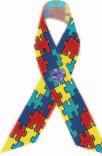
Bermuda Parent ||| 19
Baby-Wearing: Traditional Wisdom for Modern Wellness
 Dr. Bari Fenster
Dr. Bari Fenster
Have you ever seen, or been a mother trying to remove a car seat from the car? It’s a challenge, to say the least. Since it’s nearly impossible to get squarely in front of the carrier in the backseat, removing it from the car becomes an exercise in bending, twisting, lifting at odd angles, and suppressing many a four-letter word. New mothers attempting this maneuver quickly realize that abdominal muscles don’t automatically return to pre-pregnancy strength, and that lower backs can feel rather vulnerable with all this wrestling. Once the seat has been removed from the car, there’s the balance challenge of carrying it around town with one arm while dangling a diaper bag and a purse on the other. And just as this dance has been mastered, your baby increases the challenge by getting larger and heavier.
Given these circumstances, it’s no mystery why my office is so busy! As a chiropractor specializing in pediatric and pregnancy care, I have the pleasure of helping mothers adjust to the changes that occur in their bodies during pregnancy and in their lives once baby arrives. The battle with the car seat is a common source of struggle for new parents, as they often feel it is the only way to safely transport their new family member around town. While the car
seat is undoubtedly the best place for baby to be in the car, I encourage parents to utilize more ancient transport methods once they’ve reached their destination: baby wearing!
“Baby wearing” is a term to describe transporting a baby against your body in a soft, cloth carrier, and has been utilized in various forms across cultures, throughout history. While it may be seen as outdated with all of the advances in car seats and stroller design, baby wearing offers enormous benefit to mother and baby alike.
Considering the health of the parent, wearing a baby removes the weight of the car seat from the carrying equation. This lighter load is easier on mom or dad’s body in more ways than one. Not only is there less weight overall, but keeping the weight of the baby closer to the body’s center of gravity is far less stressful on the frame than holding it at a distance. In order to appreciate this fact, consider holding a bowling ball close to the body versus at an arm’s length. It won’t take long to realize which causes more physical stress! Added bonus of removing the car carrier: freedom for mom and dad to use both hands while performing daily tasks!
The benefits also extend to baby. Consider a baby in the womb. For nine months, they are warm, in motion, can hear a heartbeat, and are in constant contact with their mother. Wearing baby close to the body allows for a smoother transition to life outside the womb, as it provides all of these comforts while taking in the stimuli of a big, new world. Since parent and baby are in such close proximity, parents are able to pick up on their baby’s non-crying communication more easily, and attend to their needs more quickly. Baby learns that his or her needs are understood and responded to quickly, and this generally results in less crying overall. Parents who wear their babies often report an easier transition to parenthood than expected, report less crying overall and, as a result, feel more confident in their abilities as caregivers.
As 65% of neurological development occurs within the first year of life, baby will greatly benefit from the positive neurological input that close carrying provides. The stimuli provided at close range while baby is in a relaxed state, in addition to constant vestibular (motion) stimuli associated with being upright in the sling instead of flat on the back in a carrier, provides healthy neurological stimulation and
20 ||| www.bermudaparentmagazine.com
development. Studies have repeatedly shown that regular motion is associated with improved gross and fine motor development in young babies. More upright positioning also helps baby develop strength and coordinated control of the neck muscles, which in turn develops baby’s proprioception (the brain’s awareness of where the body is in space). This sort of stimulation is vital for healthy brain development!
Not only does having baby in varied positions provide greater stimulation to the brain, but it also reduces the instances of plagiocephaly, or flattening of the skull. As many people are aware, a baby’s cranial (skull) bones are moveable, which is necessary for baby to go through the birth process. These bones continue to be mobile after birth as well. Since babies are put to sleep, pushed in strollers, and placed in car seats on their backs, wearing baby in varied positions takes the repeated stress of lying back off of the cranium. This is important, as plagiocephaly isn’t just a matter of a funny-looking head or a few bald patches. A flattened cranium can cause neurological compromise as well. Varying baby’s position during waking hours outside of the car can help bring greater balance to the cranium. So can a visit to the chiropractor or craniosacral therapist! We can even help once the child is beyond the car seat carrying age, so don’t panic!

The old notion that constant interaction will “spoil” the child has been dispelled! A year-long study at Columbia University College of Physicians and Surgeons concluded that babies carried on their mother’s body in the first months of life showed significant increase in bonding and emotional health over babies carried in plastic infant seats. Findings revealed that 83% of the babies carried in cloth carriers were “securely attached,” compared to only 38% of those carried in the infant seats. “Secure attachment” refers to an emotional bond between child and caregiver, where a child responds with minimal distress when left alone for short periods. All that time spent in close proximity actually allowed the children to feel more secure!
There is no one, perfect carrier for all situations. Generally, soft carriers that allow baby to be held in a variety of positions work well for most families, as they allow greatest comfort and freedom for parent and baby as both bodies change. I encourage parents to try a few different varieties to see what fits their child best. It may take some getting used to, but most parents report greater ease of movement, closer bonding, and happier babies as a result. It’s affirming to know that you are positively influencing your child’s development as you make life more comfortable for everyone involved! Honor the cross-cultural tradition of baby-wearing for a healthy start in life.
About the author: Dr. Bari Fenster, BS, DC Pediatrics & Maternity Specialist


Bermuda Parent ||| 21
Providing Families with Hours of Bowling Fun Since 1961 236-5290 Open M O N DAY TO F R I DAY 4pm to Midnight SATU R DAY 6:00 pm to Midnight S U N DAY 2pm to 11pm
Supporting Young Readers
Parents are a child’s first and most important teacher and can ensure their children learn to love to read by making it a family tradition early, by reading to them every day or several times a week. Learning to read is a long process. You can support your child’s reading development by demonstrating that reading is an enjoyable experience, and a source of information. Find a special place and time for reading together. Be comfortable and close so that the reading is relaxing. Daily reading will help your child to become a life-long reader.
Reading To Your Child
Children enjoy hearing stories. Reading familiar stories, and sharing new stories, provide many opportunities for your child to hear the language of books. Talking about stories will help develop and extend comprehension skills. Discussing the details in a story is a wonderful way to build strong listening and oral language skills.
Reading With Your Child
Re-read favorite books together! When you read with your child, you provide support and encouragement for the child to read independently. Sharing the reading, and encouraging the child to chime in on favorite parts, allows the child to read with your support. Books with memorable language provide motivation for the child to become involved with the reading process. The opportunity for your child to rehearse language patterns in books provides fluency practice.
Listening To Your Child Read
Listening to your child read provides opportunities to develop confidence and stamina for reading to an audience. Setting aside a specific reading time establishes a routine. Your encouragement and interest will support reading development.
Suggestions For Reading At Home
Whether you are reading to your child, sharing the reading, or listening to your child read, it is important to talk about the stories that you have shared together. Frequently your child may talk spontaneously about something interesting in a story. At other times, you may choose to begin a discussion about your responses to the story. Try these ideas:
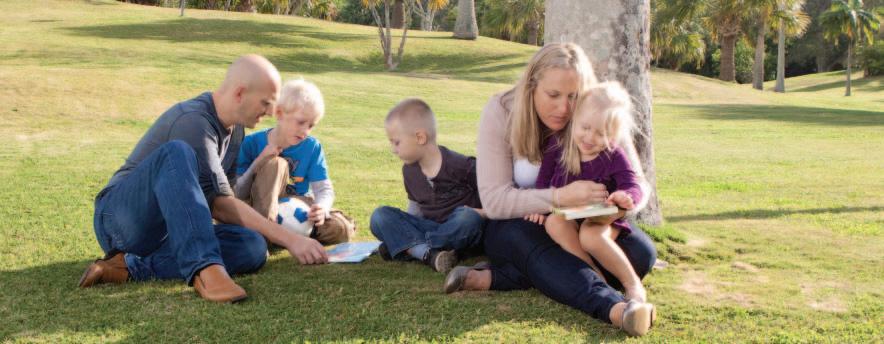
Before Reading, You May:
• Talk about the author and familiar stories written by the author
• Talk about the title and the cover illustration
• Encourage your child to make predictions about what the story will be about
During the Reading:
• Encourage your child to look at some of the pictures and predict what will happen next
• Pause to respond to your child’s ideas
• Give your child plenty of time to look at and talk about the pictures as you read
After the Reading:
• Compare this story with the other familiar stories
• Encourage your child to talk about events, characters, and ideas in the story and relate to personal experiences whenever possible
• Talk with your child about the problems in stories and why things happen
22 ||| www.bermudaparentmagazine.com
Easy things that parents can do to ensure success in beginning reading.
Little Ones |||
• Compare the story to other books about the same topic or with the same characters helping to reinforce the first reading skills and concepts at home.
Book handling skills
• Demonstrate how to hold the book the right way up; talk about the front and back of the book; turn the pages one at a time in sequence.
Directionality
• As you read to your child, move your finger along the text to show how your eyes are following the print. Be sure to point out when you have to make a return sweep on two or more lines of print. Talk about the way the print is organized on the page if the lines start at different places. This ensures flexibility in looking across the whole page when reading.
Focusing on print
• Beginner readers need to match what they say with the actual print so having them point to words in the initial stages of reading is good. If they invent by reading too many words or too little, simply ask them to go back and point to each word as they read them. Move their fingers if you have to in order to ensure they are seeing and saying exactly what is on the page. Fast recognition of high frequency words (sometimes known as ‘power words’)
• Flash cards are popular for learning fast recognition of high
frequency words (am, are, at, the, I, go, in, me, said, I, it, for, we, went, here). Ask your child’s teacher for these words and be sure to not only make a fun game out of the cards, but to point these words out in books. It is more important that your child knows how to read and write these common words very quickly so more time can be spent on enjoying the meaning of text and the decoding of words that are more complex.
Encouraging phrased and fluent reading
• Reading that is, ‘phrased’ involves reading words in groups and reading that is ‘fluent’ involves expressive and varied speed in reading. No matter how few words or lines are on a page, demonstrate reading that is smooth and uses expression. Reading that is phrased generates meaning as opposed to word-by-word reading. If a character in a story is talking, make the reading sound like talking. Vary your voice tone. Children need to hear that reading should sound like we speak and that meaning is carried with phrased and fluent reading.
For more information see these useful parent websites: www.literacyconnections.com www.reading.org/focus/beginning.html

www.kidsource.com/kidsource/pages/ed.k12.html
About the author: Darnell Wynn, M.Ed., is a Reading Specialist, and Literacy Interventionist Trainer. Contact: literacymatters@logic.bm or 441-535-8035
Bermuda Parent ||| 23
5 tips 5 tips
By Dana Obleman
for a fun and stress-free bedtime
by Dana Obleman
It’s been one of those days—and despite your best efforts, it’s an hour past your children’s bedtime and you’re still trying to get them into their pajamas.
Half an hour later, you’re still trying to get the kids into bed but they’re busy goofing around instead of brushing their teeth. Gaagh!
The next thing you know, you’re raising your voice and snapping at them to “get to bed NOW or else!” and your last few minutes of family time are filled with unnecessary strife that leaves you frazzled and feeling like a less-than-stellar parent.

The good news is bedtime doesn’t have to be a struggle.

24 ||| www.bermudaparentmagazine.com
Little Ones |||
1. Give a five-minute warning: Nobody likes to be pulled away from what they’re doing without any kind of warning. For children this is especially true. They thrive on structure and routine to give them a sense of security and awareness of their own boundaries.
If you give them a warning letting them know that in five minutes, they’ve got to put away their toys or turn off the TV or computer and go brush their teeth, you’ll get a lot less resistance when those five minutes are up.
2. Create a regular bedtime routine: Children thrive on a bedtime routine that lets them know what’s coming so they never feel caught off guard. A warm bath, a couple of stories, maybe a glass of warm milk—all these activities help the body and brain transition more easily from day to night and create a sense of calm expectation that allows sleep to come more easily.
A good time frame for a bedtime routine is 20-30 minutes in length.
3. A timer is your friend: When you’re busy having fun, five minutes can seem like an eye blink. No wonder kids get upset when you tell them playtime is over!
A timer is a great way to help your kids feel like they have more control over the situation and defuse the power struggle. After all, it’s not YOU who are saying it’s time to put the toys away—it’s the timer. Of course, in order for the timer to be effective it has to be the law—which means you have to obey it as much as the kids do.
4. Set a story limit—and stick to it: “Just one more, Mommy!” How many times have you caved in to that request?
The problem with caving is that your children will expect you to do it every time. And on the nights when you don’t give in, they won’t understand why you’re not playing according to the established pattern and this can make them feel confused and upset.
That’s why it’s good to choose a specific number of books (our family limit is two) and then always read THAT number and no more. It creates a sense of expectation and security that will help your children fall asleep more easily.
5. Follow through with consequences: If your kids have never followed a bedtime routine, you may experience some resistance when you try to introduce one.

If your kids complain, act out, or ignore you, the best thing to do to remain calm and consistent and let them know exactly what the consequences will be if they refuse to do what you ask. Then you absolutely have to follow through on those consequences.
HERITAGE NURSERY & PRESCHOOL

59 Dundonald Street, Hamilton
Ages 1 - 5 years
Our aim is to nurture and prepare our students for higher education.
ACCEPTING APPLICATIONS NOW
Arts & Crafts – Devotions - Sing Along Group Activities - Story Time - Field TripsPlay centers and much more…
Hours of operation: 7:45am to 5:30pm
Telephone: 292-4681 ~ Fax: 295-4589
Email: nrenfroe@northrock.bm
For example, if you have to ask your kids three times to stop playing their video game and go brush their teeth and they just ignore you, there should be some sort of meaningful consequence for that. Maybe it means you won’t read them a story because there isn’t time for one.
Of course you will all be sad to miss out on story time that night, but you can be sure they will listen to you the next time you tell them to brush their teeth!
It only takes a few nights to make bedtime a dream.
Imagine spending quality family time with your kids each day before putting them to bed at an hour that gives them all the healthy sleep they need.
… Then imagine how wonderful it will be to follow up that great experience with a few hours of “you” time each night!
Sound like a dream? It doesn’t have to be. Just follow the tips outlined above and in a few days you’ll be amazed at how much easier—and more fun—your children’s bedtime will be.
Bermuda Parent ||| 25
“EVERY CHILD IS Special”
Mrs. Nicole Renfroe, Director
Here are five tips to get the stress out of your evening routine and end your time with the kids on a high note.
101 Meal Planning
by Sara Westhead
I am a self-confessed, avid meal planner.
I’ve been planning our family meals for years, especially when I gave up full-time work to be a work-at-home/stay-at-home mom to my two sons, and our family saw our income change from two salaries to one. To be honest, it was not difficult at all to start, and we’ve managed to limit our grocery bill to buying what we need, as opposed to having a cupboard full of stuff that you just can’t make a healthy meal out of.
You will have probably seen kitchens like that – or maybe even yours looks like that. It’s jam packed full of all kinds of stuff, mostly pre-packaged junk items, but when it comes to the end of a long day and you’re standing in the kitchen, you just cannot make heads or tails of what you have, cannot figure out what to make for dinner, and so opt for take-out instead.
The first step in meal planning is to make a list of all the meals your family enjoys. Ask every person, from the oldest to the youngest, and that includes the two-year-old, what their favourite dinners are. Type it up and stick it on the fridge, so it serves as inspiration. You can even go a step further and gather all those recipes up into one binder and put it in an easily accessible place in your kitchen, so that you can grab it as needed.
Next, start taking an inventory of what you have in the fridge, the freezer and the cupboards. It may be time to organize those shelves, so that all the pasta is in one spot, the snacks in another, and the tinned veggies and soup in another. How you do it really doesn’t matter, just as long as you, as the primary cook-cleaner-and-bottle-washer can find what you need. Then, as you make future grocery shopping trips, make sure things are put away where they belong, rather than just loaded wherever they fit into the cupboards.
Once those first two steps are done, you probably won’t need to do them again, except to maybe add a new recipe to your list.
Now, its time to get down to the nitty gritty of your regular planning. Using even a sheet of paper, or by downloading one of the countless free meal planning templates off the internet, begin planning your meals.

I, personally, use a page I created myself, that fits in my half-page binder, that allows me to plan two weeks of dinners, as well as leaves space for me to write out my grocery list. Some templates online will include space for breakfast, lunch, dinner and snacks for a whole week, while others have spaces for a whole month.
Rather than wasting the food already in my kitchen, I usually head in there to see what I have and, working off our family favourites list (which I now have committed to memory!), I will fill out some of the days on my two weeks of planning with just what is already in the cupboard. Then, I’ll fill in the other spaces with other meals, also making note right there of any special occasions that I might have to cook for. I even write down and plan meals out!
Then, sitting down with my two weeks of meal plans, I write in my third column my grocery list for the week, adding in any non-food items we might be running low on, like toilet paper or cleaning supplies, as well as any other regular items you know you need to get, like milk, bread and school snacks.

Finally, I head to the grocery store, with the meal plan and grocery list in hand, carefully watching out for what’s on sale. Thankfully, I’m pretty good with mental arithmetic, but some may want to even take a calculator along, to make sure they’re getting the best value for their money by working out the basic price per item and comparing it to other similar products. The most important thing is to stick to your list. Don’t buy what you don’t need.
The only time I ever make an exception to this is when something I use regularly, like jars of spaghetti sauce which we eat once a week, goes on sale. Then, I’ll likely buy one or two extra jars to stock up.
I also always make sure that I have at least two easy meals – the kind you can make in a few minutes – in my cupboards at any time... just in case.
So, while my husband may sometimes complain that it looks like Old Mother Hubbard’s kitchen, I always have enough food to get through, and all while staying within a budget!

MENU PLANNER
Monday Tuesday Wednesday Thursday Friday Saturday
SHOPPING
Sunday
Lunch Requests:
LIST



Bermuda Parent ||| 27 6 Burnaby Street, Hamilton Truly a Bermudian Family Restaurant for over 60 years! 6:30 am - 7:00 pm www.sugarrushbermuda.com
The Challenges of Boys
& Literacy
The challenges of getting boys to read are well documented, but not necessarily well understood. Census data and research studies suggest boys are diagnosed more frequently than girls as having Attention Deficit Disorder (ADD), more likely to end up in Special Education programs by a two to one ratio, three times more likely to be retained, and represent the majority of students that drop out from high school. Yet, through all of this boys do end up going to college and doing well in business and other fields. What makes the difference between those that succeed and those that do not?
One factor is well documented; boys from low-income families have less chance of becoming a proficient reader than boys from middle class and wealthy families. The difference between success and dropping out has more to do with one’s income level than with one’s gender. However, girls from low-income families become proficient readers more often than boys, so gender does seem to play a role. Some of the reasons for this might be the lack of positive male role models for boys. Boys see mothers and other females read more frequently than they see fathers and other males reading. In general, boys do not identify themselves as readers because the role models they look up to don’t engage in reading as frequently as females. This means eventually boys don’t value reading as a life skill. Young boys need to develop their identities as readers in and out of school by seeing other males reading and using reading to enhance their potential. Just finding more books that are interesting will not help if boys don’t see themselves as readers.
One of the biggest challenges is making changes at home and in schools to support boys as readers. Following are some challenges associated with boys and school based on research and my experiences as an educator: The things boys like to read are often not allowed in schools.
Boys are generally less concerned with reading to please the teacher.
In general, boys spend less time reading (especially fiction) than girls.

Most elementary school teachers are female (around 90%) and may not relate to boy readers as well as girl readers.
Boys need more books with positive role models. These challenges mean parents and teachers must become more aware of the problems of getting boys to read and some of the ways in which they can support their male readers at home and at school. There are several ways we can help boys develop a sense of themselves as readers and get the books they want into their hands. First, boys need help in finding and selecting appropriate reading material. To get boys excited about reading I suggest looking at on-line book reviews at (www. carolhurst.com), booklists on (www.guysread.com), peer recommendations, children’s choice awards like the International Reading Association (www.reading.org), and talking to teachers that are familiar with titles that get boys excited about reading.
Providing Opportunities to Read:
• Access to Reading Materials
• Time to Read (at home, in school, in between)
• Choice in What to Read as Much as Possible
• Support in Selecting Appropriate Materials
• Response to What has Been Read (time to talk about books)
28 ||| www.bermudaparentmagazine.com Big Kids |||
Second, we need to help boys see themselves as readers and understand both the immediate as well as the future purposes for becoming a proficient reader. In other words, we have to find ways to make reading cool both in and out of school.
Third, we need to provide access to a wide variety of books and reading materials. Teachers and parents have to let go of some of their biases about books with underwear, farting and misbehavior, and allow boys to read books that they enjoy and are engaging. There is time to read more difficult material, but first we have to get boys reading.
Finally, we have to learn how to help boys make sense of what they are reading and keep comprehension of texts as the primary goal in reading instruction. The focus must remain on making sense of texts and the purposes for reading. The more purposeful we can make reading, the better chance we have of enticing boys to become readers.
More Information:
My Website for Booklists: www.frankserafini.com
Jon Scieszka’ Website: www.guysread.com
James Patterson’s Website: www.readkiddoread.com
Texts For Boys Should Be:
Focused on plot not drama and emotions
Visually Appealing –interesting visual elements –graphic novels, magazines
Purposeful – provide information boy readers can use
Readily familiar –main characters boys can relate to
Engaging – sustains boys reading over time – books in series are important

Edgy – often contain controversial or contemporary issues
Humorous – contain a sense of mischief, slapstick
Brief – shorter books can be read more frequently
About the author: Dr. Frank Serafini, Associate Professor of Literacy Education, Mary Lou Fulton Teachers College Arizona State University

Bermuda Parent ||| 29
By Necheeka L. Trott
Parents are Key to Kids’ Mathematical Development!
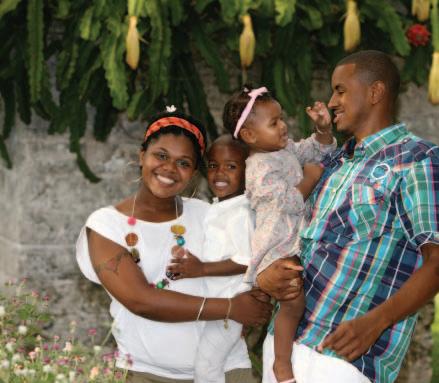
Mathematics is a wonderful subject! It is one of the few universal languages in the world. Parents must do their best to make math fun and relevant if their child will embrace the world of mathematics. Mathematics is a subject that provides career opportunities and opens doors while a lack of mathematical competencies can close doors.
Always having a positive attitude toward mathematics is essential. Most people do not have a liking for mathematics and often make negative comments when their children have a problem involving mathematics. Comments like, “I never liked math, math was not my favorite subject, or I was never good at math”. Speaking positively about mathematics in the presence of your child can have a great impact on their attitude towards the subject and build their confidence.
Point out to children, that we use mathematics every day. Exposing kids to mathematics in various settings is the key to assisting them embrace mathematics. Parents have the ability to demonstrate to their children the use of mathematics in everyday situations using a range of everyday experiences. Math is all around us and makes all things happen. This article presents resources that will assist parents in nurturing their children’s mathematics skills.
MATH: Makes All Things Happen
Cooking
Spend some quality time in the kitchen with your child making dinner or chocolate chips cookies. Have your child help you figure out the correct measurements if you half or double the recipe. This is an excellent way to provide your child with hands on skills while learning mathematics.
Shopping in the grocery store
As you cross items off of your list, have your child estimate the prices to gauge the total amount of the purchase or figure out the change before the register calculates it. Including them in the process helps them have a greater understanding of money sense and money management.
Playing games
Games are an excellent way to learn about mathematics. When children are having fun they are more open to learning new skills. Sequence, dominoes, math scrabble, and phase ten are a few games that all help children develop key logical and critical skills. Whether your child enjoys math or one who is not a fan, mathematical games expose, teach, and provide an opportunity for them to practice their skills and gain new ones.
Driving
Take advantage of the time spent in the car driving. Ask your child to add, multiply, or divide the first two or three numbers of the car’s license plate in front of you. This will assist your child improve their mental mathematical ability. Practice makes perfect and the more you use mental math the easier it will become.

Dining out
If you have a budget for dining out, have your child determine how much each person is allocated. Also, be mindful to include the gratuities and have them determine the gratuities before the bill is presented. You can create a game and the person who has the closest answer to the correct gratuity amount will be allowed an additional $5 towards their allotment for the next dining experience. This is an example of how to have your child utilize math skills without their knowledge.
Birthdays
Have your child calculate an individual’s age by asking for their birth year or vice versa and have them determine the year the person’s was born by using this age. These are ways to engage your child in a mathematics experiences while developing their skills.
As you can see there are many ways to have your child connect with the world of mathematics. Parents are vital in supporting their child’s teacher in this development. Parents’ attitudes toward mathematics have an impact on children’s attitudes. Children whose parents show an interest in and enthusiasm for mathematics around the home will be more likely to develop that enthusiasm themselves. Remember, MATH: Makes All Things Happen!
Necheeka L. Trott is the Dean of the Division of Liberal Arts at Bermuda College and also a Senior Mathematics Lecturer.
30 ||| www.bermudaparentmagazine.com
Big Kids |||




Helpful Homework Hints
Does your child have difficulty starting assignments, rush through homework without checking, or even give up on homework?
Many children, especially those with learning differences, stumble when it comes to homework. The good news is there are ways to help children stay on track with their homework. Finding the best combination for your child takes creativity and hard work. Let’s start with structure.
1. Figure out the time of day when your child works best (before school, right after school, or in the evening following a break from school).
2. Organize your child’s work space to maximize focus (large, clean work area or cozy corner with space to move around for break times). Change the surroundings to improve concentration (lighting, the best noise environment).
3. Determine how long your child can work before needing a break (10-15 minutes, 15-20 minutes, 20-30 minutes, 30-45 minutes). Include 5-10 minute breaks that work best for your child (snacks, stretching, walking/running, outside activities, playing with a pet).
4. Choose an approach that helps your child to get started (do the easy questions first, get the tricky questions out of the way, preview all questions and help your child choose where to start).
5. Praise your child for attempting and checking homework. Help him or her to see progress and celebrate successes!
There are specific ways to help your child with reading, too. Set up a regular ‘family reading time’ each day to settle in to a good book. Make sure you have a comfortable space and good lighting. The US National Institute for Reading recommends many strategies for parents to help children learn to read (Put Reading First www.nichd.nih.gov/publications/ pubs/upload/PRFbrochure.pdf).
by Amy Smith
You may want to start with these ideas.
1. Make sure that most of the words in the book are ones that your child can already read.
2. Explore the book: discuss the title, the pictures, and encourage your child to predict what might happen in the story.
3. Support children where they need it: help them follow the lines, sound out words together, provide them with words they don’t know
4. Have your child talk about the story during and after reading. Ask questions like: “What do you think will happen next?”
Re-reading familiar books is a great way to boost confidence, vocabulary, reading fluency and understanding. More ideas on homework can be found in the book Parent Guide to HassleFree Homework written by Dr. Judith Stein and colleagues and published by Scholastic. Remember, if you have trouble finding the right homework mix for your child; make sure you talk with his or her teacher.
Amy Smith is a Learning Specialist for The Reading Clinic, a charity that promotes literacy and numeracy in Bermuda
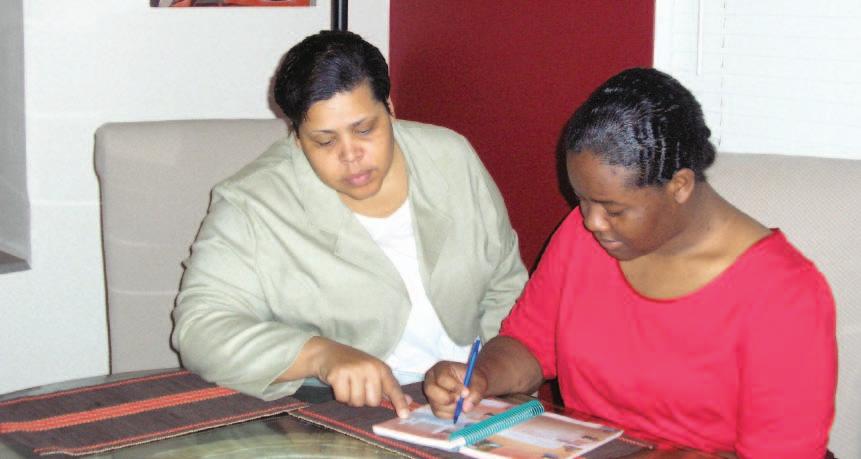
32 ||| www.bermudaparentmagazine.com
Big Kids |||




A BUEI Membership gives you a world of educational fun for the entire family. BUEI Membership allows FREE entry to 300+ popular science centers and children’s museums around the globe! Become Explorers today! BUEI www.buei.org 292-7219
Sporting Chance
by Chris Gibbons
A child’s involvement in sport is not only good for their health but it also teaches them valuable life skills like responsibility, commitment and camaraderie, as well as improving their motor skills, coordination and self-esteem.
Fortunately, Bermuda has a wide range of youth sports programs to choose from.
To start, expose your child to as many different activities as possible from an early age to see what interests them. Attend events, check after-school clubs and camps, and simply watch your child playing. What do they play with friends? Can they comfortably catch a ball? Do they love the water or riding a bike?
Most organized sports programs start between the ages of 4 to 5. At this age, children have short attention spans and follow only basic instructions, so the focus should be on having fun and creating a positive experience. Typically, a child won’t decide what sports to concentrate on until age 7 or 8, when they have developed physically and mentally to handle more structured coaching.
Southampton-based Bermuda Youth Sports Program (BYSP) offers a good introduction to team sports. Started in 1992 by parents, it involves more than 550 boys and girls aged 5-16 in soccer, basketball and baseball programs. Every child gets equal playing time with emphasis on the development of positive attitudes and self-esteem through participation rather than competition.
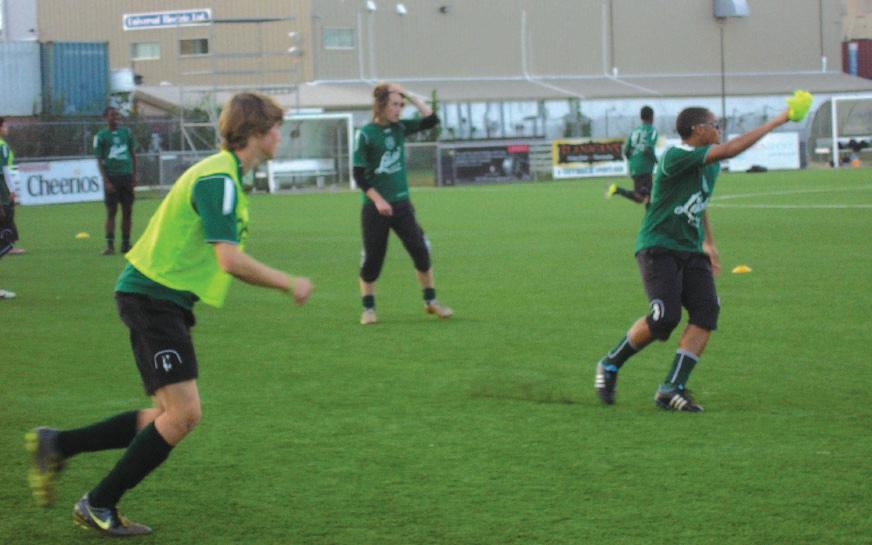
BYSP president Dominic Powell says: “Our aim is just to get kids out there playing sport in a competitive but sporting environment –showing them how much fun sport is and can be something they can do for life.”
BAA, former national coach Kenny Thompson oversees a soccer program involving more than 220 children aged 4 to 16. Every weekday night, the club’s ground is a hive of activity with teams training two to four times a week.
“We offer a high quality program in a safe environment that meets the needs of everyone from kids who just like the idea of running around and kicking a ball to those that have ambitions to earn a college scholarship or maybe a professional career,” he says. Don’t force your expectations on your child – it will likely have a negative impact. Because you were a good soccer player doesn’t mean your child is a budding Ronaldo.
If they become anxious or cry frequently during activities, try a different sport. A child who doesn’t enjoy team sports may thrive on an individual sport such as tennis, sailing, horse-riding, dance or gymnastics.
Aikido, for example, is a non-competitive and defensive style of martial arts that can help build confidence and discipline in children. At Bermuda Aikikai in Warwick, classes stress qualities like courage, honesty, and tolerance. Attendance and etiquette are ranked along with physical ability when it comes to earning belts and parents are urged to support these attributes at home.
Former Olympic swimmer Victor Ruberry, who oversees the aquatics program at Sandy’s 360, says swimming instills confidence, responsibility and self-reliance in youngsters. “We emphasize that losing is not failure – it’s just a way of looking at how to succeed in a certain area. You can lose a race but learn a lot.”
34 ||| www.bermudaparentmagazine.com
Big Kids |||
Choosing the right sport can give your child a winning start in life
Your child’s sport will require a big commitment on your part such as time involved to get a child to practice and games every week. You need to consider the impact on your family’s schedule. Parental involvement and encouragement can make a difference in your child’s enjoyment of a sport. In addition to cheering them on from the sidelines, try and help out with fund-raising or setting up equipment.
When children reach a more competitive standard, clubs and organizations often require children and parents to sign agreements committing to the training demands of a program as well as maintaining standards of behavior and academic levels at school.
“If your child is part of a good program, it requires good time management on everyone’s part,” stresses Kenny Thompson. “Players must learn to make time for schoolwork, family, their faith or other activities as well as football.”
At the Stingrays swim club at Sandy’s 360, for example, swimmers in the developmental squad (aged 7-8 and up) are required to train for three one-hour sessions a week, rising to four or five times a week for senior squad members.
Your child may not end up being an NBA star or an Olympian but if they excel, sport can offer opportunities to travel and compete overseas, earn a college scholarship, or build a sports-related career. Even if sport simply helps your child become a healthy and well-rounded individual, it will be one of the best investments you can make in their future.
Useful links & information

Bermuda Youth Sports Program (www.bysp.bm)
Bermuda Futsal Federation - Peter Sousa: 595 8787 email: bdafutsal@yahoo.com



Department of Youth, Sport & Recreation (www.youthandsport.bm) for links to national governing sports bodies.
About the author:
Chris Gibbons is a former sports reporter and sports editor with The Royal Gazette and the Mid-Ocean News. He is currently editorial director of his own company, Kaleidoscope Media Ltd. At age 9, his son is already a better soccer player than his father ever was but has disappointingly announced that he intends to play for Liverpool, not Queen’s Park Rangers.
Bermuda Parent ||| 35
Tweens & Teens

Parent Connect
by Reeshemah Swan, Principal of Whitney Institute Middle School
The transition from primary school to middle school is an interesting one. Ask any parent who has a teenager between the ages of 10 and 14. This particular age group of students literally transform in front of your eyes as they navigate this journey called “adolescence.” As these are trying years, your children will encounter numerous challenges as they seek to find themselves emotionally and socially and establish their independence.
As a school principal, the overarching concern is the decrease in parental support. In primary school parents are most attentive, and attend virtually every PTA meeting, parent meeting, school production and event - this is commendable. However, once these same students enter middle school, this support system begins to wane when in fact it should be expanding and strengthening. The attendance at these same meetings and school events decreases. Contrary to popular belief, children need more support as they get older – not less.

Establishing Routines
In order for your children to become the scholars we know that they can be, it is important that they review and revise their work every day. This means that a comfortable work space at home must be established. This work area is very important as it helps you and your children to establish consistent home routines.
Once at home, children should change their clothes, have a snack and take out their planner. The planner is provided by the school and it should contain homework, tests and/or assignments that are due for the week. Students are expected to record these items during the class lesson – normally at the beginning and the end. All assignments should be done in order of their due dates. This will avoid last minute rush jobs or last minute cramming which often results in poor performances.
A middle school student should spend at least 2 hours on homework. This includes completing assignments, reviewing notes, studying and reading. Help your children to be organized by developing a homework schedule and posting it on the refrigerator and sticking to it. If you don’t have an area in your home where your children can work, feel free to contact your child’s Advisor at school. Schools assist in making such provisions.
Extra Curricular Activities
It is important that once your children are dismissed from school they leave the premises and go home or to the agreed place that you have set. It is important that students and parents maximize after-school hours positively. Every afternoon your children should be engaged in some kind of after-school activity. This can be a sporting activity, school club, academic activity, community service activity or work activity. The main principle is that your children are appropriately and adequately supervised and participating in healthy, positive activities that assist in developing their character. The research shows that children who are involved in these structured and positive activities are more likely to succeed in school, and they are less likely to participate in negative, anti-social behaviours.
Parents often think that after-school activities cost money. Believe it or not, many of them are FREE or of minimal cost. While each middle
school can boast of its own extracurricular program, there are also various community agencies that have partnered with each middle school to assist in youth development. Enrollment in these programs is simple; and once admitted, student commitment is encouraged. Call the school office and make inquiries so that you can take advantage of the services available to you.
Dealing with Issues
In middle school, students tend to get into more peer conflicts; especially in M1 as there are more students per year level in middle school than in primary school. The average year group comprises 50-110 students as opposed to 20-30 students. We find that in M1 many students report incidents of bullying - mostly teasing and name calling. As children attempt to acclimatize to their new surroundings and their new peers, some tend to seek attention and it isn’t always in a positive manner. One way parents can assist their children is by reaffirming them and building their self-esteem. Children need constant validation. Also, if there is a problem notify your children’s respective Team Leader.
In M2 and M3 we find that bullying still occurs; however, it does occur to a lesser degree. Students are no longer new to the school and many have become comfortable with their middle school and have a cadre of specific friends that they associate with regularly. As a result, many of the conflicts arise due to negative peer interactions.
It is important that parents keep the lines of communication open and stay connected with their children. This means listening and asking probing questions to get the complete picture.
When the school and home work collaboratively for the good of the children, positive results occur.
Bermuda Parent ||| 37
Giving Our Children the Foundation for a Happy Life
 by Martha Dismont
by Martha Dismont
Emotional security is the foundation of all of our achievements. Accomplishing anything in life begins with a bit of vision, the desire to contribute, faith that you can succeed, and the nerve to hang in there when it is difficult. All of these qualities are rooted in personal character and self esteem. The most powerful place to develop self-esteem is in the relationship between parent and child.
It can be so easy to forget the power that we have as parents to define the way that our children see themselves. Children are programmed to seek independence and break free from us. This begins with their first steps and shows up along the way as they enter teenage years and beyond. We may not realize it but they are always keeping one eye on us, hoping to see our approval, love and admiration. As parents, we worry about this breaking free and very often become too consumed with criticism and correction. Teaching good self-discipline is important but we have to remember to meet the needs that our children have for love and security first if we want them to value our other lessons about life and how to live it.
Our greatest opportunity to influence our children’s choices is to help them feel secure about our love and commitment to them. When a child feels secure about their attachment to parents, they also feel attached to the things that are important to their parents. A secure child tends to care more about their family, their community, and the beliefs that their parents share with them. This makes it more pleasurable for them to share your faith, to resist peer pressure, to invest in education, and to trust their own heart. Each time they make a choice that reflects your values, it reminds them that they are part of something rewarding and special.
We have all made mistakes and parenting is a wild and humbling ride. As parents we have to find the courage to keep trying
even when things have not gone well. It is always worthwhile to do some soul searching and ask ourselves if we are being genuine and attentive. It takes courage to be honest about our mistakes and move ahead positively. Even if children are grown, we can remind them of our commitment to them and create a welcoming and trustworthy environment that they can turn to in their time of need. Children don’t love us and need us because they think we are perfect. They simply want to know that we “belong” to them and that we share a bond that will never be broken.
A few strategies that are worth remembering:
1. Stay focused on the natural goodness of your child.
• All human beings are unique and have talents and charm. Recognize those qualities in your child and praise them.
• Don’t compare your children. They can only be themselves and only need to be good at that.
• Be grateful. Gratitude is the start of all good things and brings out the best in parenting.
• Build on strengths and interests. Children who succeed at anything can learn how that feels and apply the same effort to other things in time.
• Encourage wonder, questions, and imagination. Children love to imagine and learn. That same imagination will help them find positive direction for their life in the future.
2. Confidence is built upon security and not on a hard shell.
• As a parent, we can be tough on problems without being tough on our child.
• Children don’t need to practice suffering. Life offers plenty of opportunities for that. We provide a safe place to come home to.
• Pull in helpers and resources that can offer support. We can’t provide all of the lessons they need and many things (Like Family Centre’s services) are free.
• Step back when we are triggered. We all get annoyed, tired and grumpy sometimes. Try to recognize when you need to stop and breathe before you overreact.
3. Find good examples.
• Special interests and things that are unique to gender can leave us clueless about how to be a support to our child. Children long for understanding and guidance from someone who has been through what they are learning about. Be careful to find friends and helpers who can offer what you can’t in a safe and nurturing way.
• Children look for heroes who provide examples of courage and morals. Super heroes are OK sometimes but books and movies can also introduce children to stories about people like them who have done great things and overcome obstacles.
• Emphasize personal achievement over competition. Children can look to others for examples but they can achieve their best when they remember that their best quality is that they are unique.
Newborns look for the bright smile of an adoring parent and children of all ages want their parent’s respect and approval. Investing in our children’s emotional security is a gift that can add to their happiness for a lifetime.

38 ||| www.bermudaparentmagazine.com
Tweens & Teens |||
Your Future Starts Here

We congratulate Bermuda Parent Magazine on their launch and thank them for the opportunity to encourage parents to remember that the most important stuff is often the simplest of things.


Martha Dismont, Executive Director of Family Centre 232-1116 – Martha@tfc.prevention.bm

About the author:
Martha Dismont is the Executive Director and founder of Family Centre which is an internationally accredited Bermuda Charity that provides helping services to stabilize and strengthen children in crisis, support healthy development of children, and strengthen parenting skills.
Saltusprovides a nurturing, dynamic and challenging learning environment for young people of all ages From Foundation Year, when our youngest children are prepared for the S1 curriculum, Saltus leads students through to our Saltus Graduate Years programme and places in top universities in the US, Canada and the UK. Our mission is to inspire passion for learning and independent thinking through commitment to academic excellence, personal integrity and service to others.
Bermuda Parent ||| 39
C a n a d a n A c c r e d t e d I n d e p e n d e n t S c h o o s SALTUS GRAMMAR SCHOOL 108 St John’s Road, Pembroke HM 09 PO Box HM 2224, Hamilton HM JX , Bermuda Tel: 441-292-6177 Fax: 441-295-4977 Email: admissions@saltus bm Web: www saltus bm
Top 10 Parenting
Be kind to yourself: Parenting is the hardest job you will ever do (it is also the most important). I find that I am at my most lovely, kind and nurturing with my children but I am also at my most impatient and frustrated. Being aware of what I am feeling and why, helps me cope better as is calling in help when I need it. I also know I need to look after myself and my physical, spiritual and emotional well-being, so that I can be good to my children.
Show them you love them: This may sound obvious but in the busyness of everyday life and trying to get everyone ready for school/work, sometimes children can feel more of a burden or a chore than someone special. Children need to know they matter to you, that you love them and care about what they are doing, feeling and thinking. One of my aims is to make my kids feel confident about themselves and that I will always be there for them. I try to give all of them a hug and tell them that I love them on a daily basis. And while I am talking about hugs....you can never give enough of them. I find that in the middle of a tantrum or argument, it completely diffuses the situation if you say, “you look like you need a hug”.
Is it bad behavior?: Over the years
I have come to recognize that much of the behavior I don’t like in my children is actually not misbehavior at all but a reaction to being frightened, tired, hungry, excited or because they have had a bad day at school. I have found that trying to see the situation from their perspective or ‘getting inside their head’, helps me deal with the behavior in a much more kind and helpful way.
Trying a different approach: We all have times when we don’t like the way we have dealt with a situation, whether it is with the kids, our partners or a work colleague. It is easy to act or respond in fixed, unthinking ways maybe because it is the way we were brought up or have seen others doing it. I have found that becoming aware of what I do when my children misbehave has been really helpful in making a change and trying to take a different approach. I have discovered that parenting well is often about a decision to slow down and to take time; to take a deep breath and think before I speak or shout. I have also discovered that the first step to change in my children is change in myself.
Encouraging your kids: Everyone is happier in my house when I give lots of encouraging, loving attention to my children when they are behaving well and not expecting it. My tendency is to tiptoe away and try and get things done, but they love it when I spend time with them... even the older ones! I will give them a cuddle, read a story, sit down and play or engage them in conversation and listen carefully to what they want to tell me. I have found that eyes are more important than ears for listening! Research shows that sadly, all children will prefer negative attention like being shouted at or scolded than having no attention at all.
Allow your child to express their feelings. I know from my own life that feelings that are not talked out are often acted out, and I have discovered this is even more noticeable in my children. When my son comes home from school and is mean to his sisters or my daughter stubbornly refuses to do something I need her to, it is often because of stuff that is going on internally for them and it is important to make sure that I make time to let them talk. I try to have times of day when I turn off my phone/blackberry so the children know they are my number one priority. We try to have at least one meal a day around the table, where we can talk and listen to what has been happening for everybody and how they are feeling about it. So many important things can come out at these times that I would never have known if I hadn’t created the time for them to talk.
Children thrive on routine, limits and consistency. I have learnt that children:
a. Love routine - they know what is coming next and it makes them feel like life is orderly and manageable;
b. Need limits – they know where they are and it makes them feel safe; and
c. Need consistency – we need to follow through so children know we mean what we say and learn that actions have consequences both good and bad.
Modeling Behaviour My children are watching everything I do. They learn about what I consider important in life from the way I spend my time and money, how I treat those close to me and how I talk to and about others.
by Fiona Dill
If I want kind, compassionate, generous, self-disciplined children I need to be a role model for them.

Respect differences in your children: Each of my children is different. They have different personalities and different strengths and weaknesses. Part of my job is to encourage them in their creativity and uniqueness and not compare them or make anyone feel more important or better than the others. When they notice and make negative comparisons, remind them they are fearfully and wonderfully made and we all have different gifts to offer.
Remember to enjoy your children
With six children, a busy Pastor husband and a part-time job, it is easy for me to feel overwhelmed and focus on everything I have to do and organise for my kids: laundry, meals, shopping, homework, after school activities, lunchboxes etc. I have found that it can take the joy out of parenting and I miss out on seeing how wonderful my children are. Taking time to slow down, remembering that they are a gift and trying to cut out unnecessary activities and to preserve family time has been so important to helping us as a family grow together and appreciate each other.
40 ||| www.bermudaparentmagazine.com
2
1
3 7 4 8 9 10
6
5
Tweens & Teens |||
Mount Saint Agnes Academy offers a safe and caring environment where students are nurtured at every level. This coupled with our world-class curriculum, creates an opportunity for our students and parents that is second to none.



We invite all parents/guardians who are interested in enrolling their child/children in MSA, to send in applications for the 2012/13 School Year. Potential students will be academically screened and interviewed by the Principal, together with his or her parent(s) or guardian(s).

Space is limited, so be sure to obtain your application form TODAY either from the School Office or online at www.msa.bm
The School is available for tours, and Faculty and Staff are available to answer any questions that you might have about the school’s religious and academic programs.
19 Dundonald Street, West Hamilton HM 09, Bermuda Telephone: 441-292-4134



Email: msaoffice@msa.bm www.msa.bm
.
Bermuda Parent ||| 41 Visit bermylink.com to see our breakfast, lunch & dinner menus! Not Just Chicken! • Call us for your next gathering! Good Food at Reasonable Prices! • IHOP-style breakfast every day until 11AM! • Traditional Codfish Breakfast on Sundays! Kid’s Birthday Party? Call US! 27 Queen St., Hamilton HM11 Tel. 292-6109 Hours of Operation 7AM – 10PM | Mon – Sat 8AM – 7PM | Sun Hours of Operation 11AM – 10PM | Mon – Sat 12PM – 7PM | Sun 227 Middle Rd. Southampton SN04 Tel. 238-2319 YES! WE CATER! 10 PIECE CHICKEN BOx FREE LARGE FRIES ONLY $14.95 10% OFF ENTIRE CHECK 12” PIzzA, 2 FREE TOPPINGS ONLY $15 2-PIECE FISH & CHIPS: FRESH FISH FILLETS & FRIES FREE MEdIUM SOdA ONLY $8 PHILLY CHEESESTEAK FREE SMALL FRIES ONLY $9.50 WE ALSO ACCEPT OUR COMPETITORS’ COUPONS ANd AdVERTISEd SPECIALS Coupon expires 4/30/12 Coupon expires 4/30/12 Coupon expires 4/30/12 Coupon expires 4/30/12 Coupon expires 4/30/12 Cut here! Advertise your camp, business, product or service with WWW
Magazine
com
.
Mount Saint Agnes Academy Through Faith and Learning
Developmental Disability Explained
by Dr. Kimberly Mills

Bermuda is an amazing and beautiful country. Some of Bermuda’s bragging rights include being a top tourism destination for travelers all across the globe, as well as being a hub for international business and banking. All of these things make us proud to live and work in Bermuda and call this wonderful country our home. This country receives accolades for some of its better known offerings, and I respectfully submit that Bermuda should also receive accolades for the advanced programme for youth with Autism Spectrum Disorders (ASD) and other developmental disabilities found in its third sector charity, Tomorrow’s Voices – Bermuda Autism and Early Intervention Centre. Tomorrow’s Voices is a global model of excellence and paving the way for a Bermudian society that makes increasingly better efforts to serve its youth and adults with developmental disabilities through research based therapeutic practices, weekend respite programs, consultation to schools and families, training of allied health professionals and advocacy for better service to developmentally disabled populations throughout the country. But just what, you may ask, is a developmental disability? What is the difference between having a different or temporary challenge versus a disability?
According to the Disability Discrimination Act based out of the United Kingdom, a disability is defined as ‘a physical or mental impairment which has a substantial and long-term adverse effect on a person’s ability to carry out day-to-day activities.’ Sounds simple enough right? The key factor in distinguishing between a disability and perhaps a temporary impairment is the issue of how chronic and pervasive the impairment is. If for example, you break both legs, this will certainly have substantial and adverse effects. But these effects won’t be long-term, therefore would not be considered to be a disability. At some point, the legs will heal and normal walking will be able to be resumed. Generally, disabilities do not go away, although through careful planning, early intervention and the use of research based therapies, we can certainly mitigate some of the adverse outcomes that have historically been associated with having various diagnoses.
Disabilities can be mental such as emotional disabilities like bi-polar disorder or schizophrenia, they may be cognitive disabilities such as learning and intellectual disabilities, and they may be physical such as paralysis, blindness or deafness. They may also be medical when one is diagnosed with having something like Fibromyalgia . The important thing to remember is that it is not the presence of the condition that indicates
a disability. It is the degree to which having the condition limits your ability to interact with the world and actively participate in your own life. A person could have autism and learning challenges, yet because their lives are not adversely impacted by having these conditions, they would be considered to be disabled.
Now that you know what a disability is, what do you need to do if you know or suspect someone of having a disability? Some have argued about whether or not it is important to have a diagnosis. I would argue that a proper diagnosis is very important. A correct diagnosis can make treatment more focused, concerted, targeted and specialized. A diagnosis can provide information and knowledge and knowledge is power. Once you know what you are dealing with, you can seek out the help of professionals, parents and friends or others to help you determine which treatment regimen will be the best for your child or loved one. You can do the research yourself to see what the medical and research experts have determined to be a best practice.
It is helpful to seek out support from online communities and network with other parents, families and friends who have loved ones who have disabilities. You should investigate options and opportunities that already exist within your local community. Respite as an example is available at Tomorrow’s Voices every other weekend for less than $9 an hour. There is a great foundation for disability services already in Bermuda, but it needs to be built up and expanded upon.
Perhaps the most important lesson to learn regarding people with disabilities is this: They want exactly the same things that all human beings want. They want independence, power, and freedom. They want health, happiness and love. They want to learn new things each day and when they are older they want meaningful and satisfying work. And they need the barriers removed that are blocking their ability to experience life and life to the fullest .
42 ||| www.bermudaparentmagazine.com
Lifestyle|||
About the author: Dr. Kimberly Mills Executive Director: Tomorrow’s Voices –Bermuda Autism and Early Intervention Centre
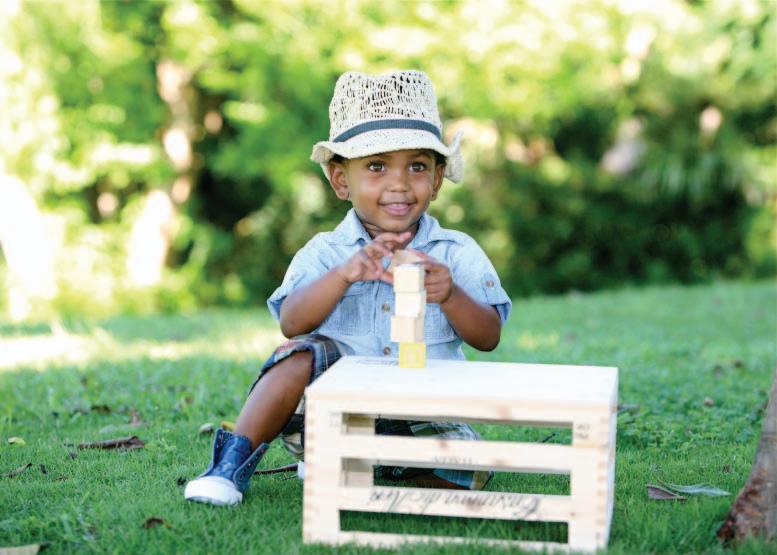
More Information: Disaboom, Additional disabilities. Retrieved from; http://www.disaboom.com/ additional-disabilities

Ultimate Social Security Disability Guide: SSDI, SSI, How to Win, Information Social Security Disability and Fibromyalgia Retrieved from: http://www.ultimatedisabilityguide.com/ fibromyalgia_disability.html
Office of Social and Economic Analysis, Health Report Card 2000. Integration of Persons with Disabilities. Retrieved from: http://www.oseda.missouri.edu/special/ boonehealth/2000rpt/disabled.html
Bermuda Parent ||| 43
Budgeting for Families
 by Sara Westhead
by Sara Westhead
Even if your family hasn’t suffered from the loss of an income in recent months or years, day to day living for families in Bermuda has become ever more challenging as we see ever rising costs in the bare necessities – food, gas, electricity and more.

Unfortunately, many families have long bought into a lifestyle of living above and beyond their means, racking up credit card debt that they can no longer afford as the value of the dollar continues to shrink.
So how does a family find its way out from under the mountain of financial ruin? Simply speaking, the answer is a budget. And what is a budget, besids something politicians fight over?
According to Lawrence Fox, Head of Financial Services at Capital G, a budget is, “a financial plan that helps track your expenses and revenue.
“To develop a plan now helps a family adjust lifestyles and get a complete picture of what they need to do in order to save more, where to cut back, and what sacrifices need to be made.”
Sadly, few families utilize a budget these days, to help keep spending on track. In fact, Mr. Fox estimates that, on average, in meeting with clients and in running seminars, only about 30 per cent of the families he meets actually have a budget and use it.
Establishing a family budget may seem a daunting task for many, and it does require some work in order to develop one, however, the benefits are enormous.
“I think the first step in establishing a budget is to first create a budget plan and on that plan, list out all expenses and income.”
He recomends that you record all your income, and then track all your spending for an entire month, saving every receipt, “right down to the purchase of a $1 newspaper.”
Once you know where your money is going, you can then begin to see how or why you might be struggling at the end of every month.
As you record your monthly costs, its important that you include every detail, from your regular bills and your groceries, to meals out and general shopping. The bigger picture will start to come together quickly, and you’ll soon be able to see where you are wasting money, and how you can prioritize your spending. Creating a spreadsheet, or simply recording your information in a book can help, as you work out your known expenses, and prioritize which items have to be paid.
This spring, Capital G hopes to implement its new website, which will also allow clients to utilize a money manager programme.
“It will assist with tracking your spending and allowing you to see where your money is going,” Mr. Fox explained. “Basically, it is an online budget plan that will calculate for you.”
Tackling credit card debt and building savings for both annual bills and general saving also need to be a part of that plan.
Paying off credit card debt should be every family’s priority, and Mr. Fox recommends that you limit yourself to just one. It is important to pay off card balances when they are due, and not let any balance roll over to the next pay month, as this will accrue high interest fees.
If you find yourself with mulitple credit cards, each with stacking amounts of debt, you need to prioritize the cards by interest rate, paying off the minimum on the lower rate cards, and paying as much of the higher rate card as you can each month, until the balance cleared. Then, ditch that card, and start working on the next, paying off as much as you can, while still paying off the minimum balance on the other cards.
However, according to Mr. Fox, “Credit cards, if used correctly, can be a method of savings.”
He recommends carefully check to see if your credit card offers an awards programme, and see how you can use it to your benefit, while always paying off the balance in full at the end of the month.
Developing a savings, for both emergencies and to pay those annual bills like insurance premiums and TCD licensing fees, is equally vital. Most people know how much their insurance and license fees will be each year, so the best way to save is to add it all up, then divide number by 12, and put a little aside every month.
Then, on top of that, families should aim at saving at least 10 percent of their income, which means living within, or in some cases, below, your means, in order to build up a healthy savings.
Of course, it is important to not touch that built up savings. Mr. Fox recommends utilizing a penalty-implied account, where you are charged for withdrawing funds, or for investing in interest-bearing Rolling CDs, where you will be penalized for withdrawing funds before the CD is mature.
Ultimately, it is vital to learn your limits – even if it means bringing your own lunch to work – and making sure that the whole household is on board with the financial plan. “As a family, you need to come together to create the budget,” Mr. Fox said. Even children, while they may not have any say in how much is spent, can better understand limits on, say, entertainment and junk food spending, when the lines are clearly drawn.
44 ||| www.bermudaparentmagazine.com










www.argus.bm The Argus Group 14 Wesley Street Hamilton HM 12 But that doesn’t mean you’ve stopped thinking about the needs of your parents. With Argus Home Essentials, you can have peace of mind knowing your loved ones are getting the home insurance coverage they need at an affordable price. Benefits include: · Quality coverage for major catastrophic events · Ability to pay premiums on a monthly basis · Available to residents 65 years and older · Fast and friendly claims service Does YOUR insurance partner do that? Argus Insurance is the trading name for Argus Insurance Company Limited, a wholly-owned subsidiary of Argus Group Holdings Limited. H O m E ESSENTIALS You may have left the nest Home | motor | Health | Travel | Life | Business | Group Benefits | Pensions | Investments T O G ET A FREE q UOTE CALL 298-0888 OR E m AIL: IN SURANCE @ARGUS.B m
Balancing
AcT
Reverend Nicholas Dill, Pastor, Anglican Parish of Pembroke
With a family of six children aged 4 to 19 as well as being the pastor of the Anglican Parish of Pembroke, life is a daily balancing act for Reverend Nicholas Dill.

In addition to Sunday service, a typical week for Rev. Dill will also involve meeting with families planning funerals, weekly Bible study classes, pre-marriage counseling and helping to run the parish’s growing feeding programme.
“There is a huge amount of chaos,” he jokes, but says having a family keeps him “grounded and humble”, although it is important to establish some boundaries.
“I work mainly from home so I try to be around for important parts of the children’s day and arrange meetings around that,” says Rev. Dill. “I prefer not to meet people from 4.30 to 7 p.m. in the evenings or before 8 a.m. so that we can have breakfast and supper together and get the young ones to bed. Our older kids help out too so we see ourselves as a team.”
Making time to be with his wife Fiona, a childbirth coach and educator, is equally important. “I’m rigorous about having Thursdays off for myself and my wife and I don’t answer the office phone or my Blackberry. I am a much better father, husband and pastor if I take a day out. We always try to get to bed at a reasonable hour and make
by Chris Gibbons
time to chat and pray.” The family’s annual three-week vacation is also “very important” as a time to relax and be together. Maintaining a balance is, he admits, a spiritual exercise.
“A lot of prayer and forgiveness goes into all this but it’s a joyI wouldn’t change it for a minute.”
Pastor Kenneth Manders, Hamilton Church, Seventh Day Adventist
As Pastor to Hamilton Church, the island’s largest Seventh Day Adventist Church, Pastor Kenneth Manders says keeping a healthy balance between family and spiritual life can be challenging but is essential. “Family life definitely helps strengthen my spiritual life but it goes both ways,” he says. “I don’t feel spiritually fulfilled without my family intact and I can’t keep my family intact without the spiritual.”
In a typical week, his duties include not only preparing for Saturday worship and midweek evening prayer services, but twice-a-week hospital visits, family counseling, weddings and funerals. In addition he is very involved in the church’s Bermuda Conference and attends numerous board and executive meetings. He also usually preaches overseas once a month.
His three boys – Andre, Stephen and Joseph – are now in their 20s and at university so family life is less hectic but when the boys were younger, Pastor Manders says it was “teamwork all the way”. Both
46 ||| www.bermudaparentmagazine.com
Fathers to their families and fatherly figures in their faith, maintaining a balance between family and spiritual life can be a challenge for religious leaders. Bermuda Parent talked to three spiritual leaders on how they manage.
he and wife Claudette were at college in Huntsville, Alabama and very involved with the church. “Everywhere we went, they went with us; whatever we did, they did.”
Pastor Manders says making time to be with Claudette is still important for a balanced life. “If I don’t schedule time, it’s not going to happen!” he jokes.


Fridays are a key time to wind down. “By Thursday evening, you’ve been going all week, so we might have the X Factor on TV and slow down and catch ourselves. Friday is spent cleaning the house and cooking ready for Saturday as we often have people over to the house after worship. At sundown we eat together and pray together.”
“I’m fortunate to have a wonderfully supportive wife. Our life is the church so having someone who shares that is a huge benefit.”
For Basim Muwwakkil, family and spiritual life are intertwined. “It’s all part of life,” he explains. “We have to find a balance within ourselves and each individual is different. If you find a balance within yourself, then you can try to give guidance to others.”
Basim and wife Sameehah Al-Amin’s four children are now adults, but he must still balance his duties as leader of the Masjid Muhammad mosque on Cedar Avenue, Hamilton with a full-time job as an examiner at the Transport Control Department.

The mosque has between 150-200 members and Basim will go there after work to lead afternoon or evening prayer. There are Sunday classes for beginners, a small school and community centre and he is also involved in committee work. Most evenings after dinner he spends time studying and writing. “Yes, you do have to make compromises,” he admits. “As parents we all wish we could find more time.” As a couple, Basim says he and Sammeehah tend to “roll with the punches!”
“A key part of our religion is our personal relationship with God which comes above all other relationships,” he explains. “We put a lot of things in our life before God and spirituality and that can cause problems for us until we put it in its proper place.”
Bermuda Parent ||| 47
Imam Basim Muwwakkil, Masjid Muhammad
the Father’s Role
by Lt. Col. Edward Lamb
So, how does one play this role effectively and successfully? I think the answer to this question is very simple. It is found in one little word that is illustrated in the song “Cats in the cradle” by Harry Chapin: TIME.
The lyrics of the chorus in this song are: The cat’s in the cradle and the silver spoon Little boy blue and the man in the moon When you comin’ home, Dad I don’t know when But, we’ll get together then, You know we’ll have a good time then
The song basically tells the story of a father who spent very little time with his son because he was too busy; and then how the son grew up to be too busy to spend time with the father.
So, my first point is: Men have to make Time for Physical connection. Too many men have the notion that it is not “manly” to show physical closeness with their children.
But, a physical connection reinforces a strong sense of security in children, and makes them feel loved. Fathers need to take time to hug and kiss their children, and for other acts of natural affection and affirmation.
Secondly, time for emotional connection: Equally as important as the physical connection is an emotional connection. In fact, they go hand in hand. An emotionally secure child grows into an adult with a
strong sense of WHO they are. Emotions tend to be associated with women, or a sign of weakness in men. We men allow ourselves to be conditioned to be “tough” – all that “real men don’t cry” foolishness.
Well, REAL men do cry. REAL men are in tune with their feelings. They are not emotionally weak but rather, are secure enough to “feel”; strong yet sensitive, and tough yet tender. Also, REAL men say “I love you” – especially to their children. To have a deep emotional connection, fathers must make time to talk to their children, especially on topics that affect them (girls/boys, homework, drugs, gangs).
Time for Spiritual connection. Spirituality is a major part of a person’s being. There are differing opinions of who God is and what He is and I am not advocating religion. I am saying though, that it makes for a better person when they recognize a superior being. Children should develop a reverence for God, whomever they perceive Him to be. Fathers must teach their sons how to humble themselves before their Creator, and teach them things like the golden rule (do unto others as you would have others do unto you).
Time to Teach: There is no better teacher for a child than the parents. Fathers teach their children all manner of lessons – either by their presence, or absence. They certainly teach by their actions. The old adage “do as I say, not as I do” is no longer applicable to the children of today.

48 ||| www.bermudaparentmagazine.com Dad’s Corner |||
What is the most important and rewarding job a man will ever have? Well, in my opinion, NO job is more important than that of a father. The role of a father is critical to the well-being and stability of society.
We have to teach our children to be productive by setting a good example for them. Charles Barkley, the famous basketball player, once said “I’m not a role model. Just because I dunk a basketball doesn’t mean I should raise your kids.” The context of what Mr Barkley was saying, in his own inimitable way, is that he thought that PARENTS should be role models for their children, not sports stars.
In that vein, fathers teach their children by the manner in which they conduct themselves and model certain behaviour. This should include teaching children:
Respect: for themselves and others – especially for teachers, their elders and the laws of the Land.
For sons, how to be a gentleman – open doors for ladies; give up his seat on the bus for a lady or older person, hold the chair for a lady; “ladies first”
Discipline: self-control, physically and emotionally How to give, and be of service, to others
Social etiquette: Closing their mouths while chewing (it’s amazing how many children have not been taught this); holding a fork and knife properly; etc
The value of time – man’s most precious commodity
In relation to TIME, here is a shopping list of ideas for fathers that I am sure will foster strong bonds with their sons and daughters:
1. Turn off the TV and gadgets – turn them on to books. Reading stimulates and ignites the imagination. Study after study has proven that too much TV is the cause of many problems in children: restlessness, short attention spans etc.
2. Read some books on parenting. Here are a few good ones:

a. Raising Boys – by Dr James Dobson
b. Forever a Father, always a Son –by Dr charles Williams
d. What kids need most in a dad –Dr Ray Moore
3. Spend QUANTITY time in order to have quality time. There was a time when the saying “quality time” was all the rage in terms of raising children. Many child experts have dispelled this notion and assert that you can only have quality time through QUANTITY time. Quality time involves spontaneity which can only happen when you dedicate quantity time, and lots of it.
4. Eat meals together. Make time to have at least ONE meal daily with your children. This develops their social skills, as well as provides them with structure. It also strengthens the bonds between family members and helps to create positive memories.
5. Visit your child’s school regularly. This shows your child that you are keenly interested in their education. Let them hear you thanking the teachers for teaching your child. Also, make time to do homework with them.
As I said earlier, there is no more important job a man will EVER have than that of being a father. To enjoy the full rewards and joys of fatherhood, we have to invest TIME into the role.
In closing, let me put this in perspective by quoting an old saying: no man on his death-bed ever says “I wish I had spent more time at the office.”
Bermuda Parent ||| 49
And a woman who held a babe against her bosom said, Speak to us about Children. And he said:
“Your children are not your children. They are the sons and daughters of Life’s longing for itself. They come through you but not from you, and though they are with you yet they belong not to you. You may give them your love but not your thoughts, for they have their own thoughts. You may house their bodies but not their souls, for their souls dwell in the house of tomorrow, which you cannot visit, not even in your dreams. You may strive to be like them, but seek not to make them like you. For life goes not backward nor tarries with yesterday. You are the bows from which your children as living arrows are sent forth. The Archer sees the mark upon the path of the infinite, and He bends you with His might that His arrows may go swift and far. Let your bending in the Archer’s hand be for gladness, For even as He loves the arrow that flies, so He loves also the bow that is stable.
by Khail Gibran
“You are the bows from which your children as living arrows are sent forth.” More than any other advice I have been given as a parent that quote most perfectly sums up my philosophy for raising my children.
If we are honest about our responsibility to our children we cannot disguise the fact that we are to be the bow. Many of us want to be another arrow flying through life living as our children, but we are the bow so they can be arrows; we must be steady so they can take flight. God is the Archer but His blessings-our children-are the arrows. So if we allow God to aim us and we stay on that path, the arrow will fly on a true path. I think that if I discipline them when it is convenient for me rather than when it is purely required, sometimes the arrow will fly straight and sometimes it will fly according to a passing breeze.
I am blessed to be the parent of two children: one adopted and one naturally born to me. I try to be a good bow. I am flexible enough to bend, but strong enough not to break. When I think about being the firmest, straightest bow that I can be for my children I think about consistency and values.
This column is not a sermon and I am not a pastor, but the poem above raises an interesting question: ‘If we are the bows and our children are arrows, then if God is not the Archer guiding you... what or who is sending your children off towards life?’
Is it your job? Does your child see and experience unhealthy unstable environments because the job is ‘god’? Does your child see you dating different women/men, partying, pursuing a reckless lifestyle? If so, does your child think pleasure is ‘god’? If our children see us craving the best tv, phone, car, jewellery, etc. will they think things are ‘god’?
Our children will fly according to our Archer...they will learn to value what we value.
None of us know where or how our children will end up. None of us know whether our angels will turn into monsters, or our terrors into well-mannered teens; but we do know they will grow; they will leave; and they will reflect our upbringing.
“You may give them your love but not your thoughts, for they have their own thoughts.
GODPA
You may house their bodies but not their souls, for their souls dwell in the house of tomorrow, which you cannot visit, not even in your dreams.”
I often think about our great-grandparents and marvel at what their children, our grandparents lived through. In today’s Bermuda, great grandparents may call their great-grandchildren on cell phones, so the technology is widely used and shared. Imagine though, raising a child in 1900 Bermuda.
My grandparents saw the advent of radios, cameras, television, portable phones, and the internet. Just think of the values that our great grandparents had to instil in our grandparents to equip them for the moral tests associated with the internet! They went from not having a refrigerator to using a microwave. Our great-grandparents had to inspire values that withstood an unprecedented moral and technological onslaught...so too for us.
We cannot live in our children’s worlds. We are not in their classes, on their buses, or on the back of their bikes; but we can (and must) prepare them for whatever society brings forth.
We cannot truly experience their wins and losses and so we can never truly know their inner motivations, but we can implant values and morals that can withstand the pressures that come from beyond family. We must prepare them for war but we cannot fight their battles. So what is in it for us? What is the reward for being a generous, loving, caring, and progressive parent? Our reward is seeing the Glory of God manifest in His Miracles; in His Blessings; in our Children. We need not produce doctors, actuaries, or artists; as parents we should guide, love, nurture, and discipline and produce empathetic human beings. We do so because we must, not for reward.
If we get it right we get to watch our children grow into healthy, giving, and humane people who will love and cherish our life lessons. Our reward is not tangible...it is spiritual and comes from a Divine obligation.

Make the Creator your Archer. Be the best bow you can: bend, be firm, and be true. Make your Children the best arrows they can. We must always remember: “For even as He loves the arrow that flies, so He loves also the bow that is stable.”
Take Care, Godpa
50 ||| www.bermudaparentmagazine.com
Crime Stoppers Bermuda is a registered Bermuda charity (No. 410) run entirely by civilian volunteers. The success of the program is due to it’s tripartite nature involving Law Enforcement, Media and the Community.

Every telephone call to the Crime Stoppers Bermuda 24-Hour Hotline is treated in the strictest of confidence and callers are not required, nor asked, for their name. All calls are answered overseas by the Miami-Dade County Crime Stoppers in Miami, Florida, USA which ensures anonymity. Likewise, all tips left through our encrypted web page are totally anonymous. These security measures enable anyone with details of criminal activity to report such information without fear of exposure or retribution. Information is then transferred back to Crime Stoppers Bermuda electronically and relayed to the relevant law enforcement agencies. In many instances, the law enforcement agencies are unaware that they are working on a Crime Stoppers Bermuda tip, which further protects the integrity of the information and anonymity of the caller.
Rewards of up to $2,000 are also offered for information leading to a successful arrest or seizure of illegal drugs and firearms. Rewards are also given for all other crimes for which there is an arrest and conviction.
All funds raised for the local program go directly into promoting the 800-8477 (TIPS) or 1-800-623-8477 (TIPS) telephone numbers and funding rewards.
We encourage you to visit our webpage at www.crimestoppers.bm, become a fan on Facebook and follow us on Twitter @BDACrimeStop
Essay Competition
Students have your say on How You Would Stop Gang Violence?
Bermuda Parent Magazine in cooperation with Crime Stoppers invite students between the ages of 13 and 18 to submit an essay based on the title below. Winners stand a chance to win cash prizes.
Essay Competition Title:
If you were responsible, what would you do to stop gang violence?
Maximum 750 words
Winners: 1st place $250 2nd place $150 3rd place $100
Sponsored by Crime Stoppers
Deadline for submitting essays is Friday, April 20th
Submit Essays To: Bermuda Parent Magazine
Email: editorial@bermudaparentmagazine.com
Questions or queries can be emailed to the above address. Entries will be judged on content, ideas and creativity, as well as grammar, spelling and punctuation. All entries become the property of Bermuda Parent Magazine.
Winners will be contacted and placed on Bermudaparentmagazine.com and facebook. The 1st place article will be in the Summer Issue of Bermuda Parent Magazine, 2nd and 3rd will be on the website.
General Rules:
The competition is open to students aged 13 to 18. Only one essay per student, and must be submitted with the following information clearly typed on it.
Name and Gender of student
Age and grade in school
Name of School
Contact Person, phone number and/or email address
Scott clarkE
Scott Clarke is currently in the second year of the Saltus Graduate Years programme (SGY). His rigorous programme of courses includes Math, English Literature, Computer Science, Chemistry, and Biology. In addition, he is also undertaking an AS Business Studies course. Last year he completed the English Language AP course with a grade of 4 out of 5. While focusing on his on studies and maintaining a place on the Headmaster’s Honour Roll he also dedicates a lot of his spare time on his sport of choice namely Track and Field. He has only been competing for the last two years but has already represented Bermuda as a sprinter in several international competitions over the last two years including the Junior Commonwealth Games in the Isle of Man in September. His goal is to continue with his progress so that when he leaves Saltus he will get accepted into a good University in the US on a track and field scholarship. He hopes to pursue interest and study sports science and Physiotherapy.
ImanI SmIth
School: Whitney Institute
Age: 13
Favourite Sport: Netball
Club: Social Club
Favourite Player: Didier Drogba
Favourite Subject: Math
Favourite Teacher: Mrs. Debbie Smith
Accomplishments: Honor Roll, Prefect


Motivator: My momma
Favourite Piece of Advice: The Golden Rule, Matthew 7:12–“Do unto others as you would have them do unto you”
Career Aspiration: To be an underwriter at an exempt company Important Characteristics of a Student Athlete: good grades, respectful attitude and a team player
Our Future looks moments together so good

rising Star –
Leanna, a S4 student, has been selected as a rising star at CedarBridge Academy because she exemplifies those qualities and attributes which serve as an example for other students. She is a scholar, student athlete, student leader, spiritual leader, musician, artist, tutor, servant and role model for her peers. Leanna is our Head Girl, the Vice-President of the National Honours Society and the Captain of our schools girls’ soccer team. She has been a Principal’s Honours student with an overall average between 90% and 100% since S1. Presently she is taking a course at the Bermuda College while taking S4 courses at CedarBridge Academy. At the annual Prize Giving 2011, Leanna was awarded six prizes and she received the Principal’s Cup, which is awarded to the student who exemplifies excellence in academics, leadership, service, and school and community involvement – an individual who serves as an outstanding example for other students.


www.kfc.bm 21 Queen Street | 296-4532 | 52 ||| www.bermudaparentmagazine.com
Stars |||
Rising
lEanna hall
kyla
SInclaIr

a role model to Follow!
Kyla Sinclair is about to be a graduate of Mount Saint Agnes Academy in the summer of 2012, where she has attended from Kindergarten. She followed her two older brothers, and also has a younger one following in her footsteps! When you look at Kyla’s resume it is nothing if not impressive! Kyla has achieved Honors with Distinction since Grade
9. She is a vibrant and enthusiastic member of the student body involved in all aspects of school life either through participation or support. Despite her busy school

schedule Kyla finds time to volunteer to help others. She devotes time at Westmeath Senior Citizens Home as well as spending some of her leisure time handing out soup and sandwiches for the Salvation Army Soup Run. Amazingly she also works at The Bargain Box, is a Catechist Aide for St. Patrick’s and is also a mentor for Youth Net. Believe it or not, somehow amongst all of these volunteering duties she also manages to find some additional time to be a volunteer at the King Edward VII Memorial Hospital. She is a wonderful role model for other young adults to follow and no doubt will one day become a solid member of the Bermudian community’s working population.
One Stop Shop for all your Child’s needs!




tyEjaE Burchall

School: Whitney Institute

Age: 12

Favourite Sport: Football

Football Club: North Village
Favourite Player: David Silva
Favourite Subject: Math
Favourite Teacher: Ms. Janell Allen





Accomplishment: Honor Roll


Motivator: My momma
Favourite Piece of Advice: Always do well because what you do now determines your future

Career Aspiration: To be a professional footballer or a crime scene investigator
Important Characteristics of a Student Athlete: good grades, good skill and a good attitude
26 Southside Road, St. George’s Tel: 297-3959 Mon – Sat: 8am – 8pm Sun: 1pm – 6pm 22 Middle Road, Warwick Tel: 238-1050 Mon – Sat: 8am – 9pm Sun: 1pm – 6pm 49 Middle Road, Warwick Tel: 232-3995 Mon – Fri: 7am – 7pm Supermarket Supermarket Supermarket
Bermuda Parent ||| 53
FINDS FAVOURITES
Diaper Genie II + Refills

A superior diaper disposal system, the Playtex Diaper Genie II: Advanced Disposal System is proven #1 in odor protection. The revolutionary AIR-TITE system uses a seven-layer film and the Push-N-Lock clamp to lock away odor. Diaper Genie II is incredibly easy to use with its one-hand design - important when parents are holding a child and trying to throw away a diaper at the same time. The AIR-TITE system eliminates twisting to make disposal easier. The internal childproof cutter makes emptying the pail a breeze. And, since the diaper only touches the film, not the pail, there’s one less thing to clean.
Dr Brown’s Bottles and Accessories
Dr. Brown’s Natural Flow® baby bottles are Bisphenol-A (BPA-free) and contain no PVC, lead or phthalates, and have received numerous design awards and acclaim from the medical community. Dr. Brown’s baby bottles are favored by many moms and dads because the Patented Internal Vent System helps reduce feeding problems like colic, spit-up burping and gas.

Baby Briefcase
A tiny bundle of joy, a big bundle of paperwork.
When you bring your baby home, there’s a ton of paperwork - birth certificate, insurance, social security forms, baby equipment warranties, thank you notes, and much more. Even the most Type A parent can’t find paperwork when sleep deprivation hits. BabyBriefcase helps parents keep baby’s essential paperwork in one place.
A charming and useful shower gift for any mom regardless of whether it is her first baby or fifth. Winner of the national iParenting Media Award.
BabyBriefcase fits into standard file cabinets and accommodates many standard letter-size file folders.
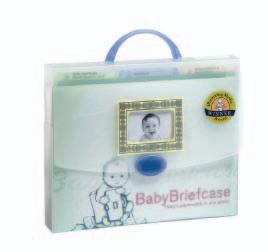
Kimberly Convertible Crib

The Kimberly crib is perfect for the space-conscious family. Its versatile build creates the perfect baby station. The changing table comes equipped with three drawers and two unit shelves that can later be used as a nightstand/ dresser. Its durable and non-toxic finish makes the crib easy to maintain. Bedding: Lambs & Ivy Timbuktu 6pc Bedding Set.
Graco Pack n Play: Oasis Fashion

Features:
• Only playard to feature natural wood.
• Real, solid wood legs complement home dcor.
• Fold away changing table with diaper storage
• Adjustable canopy
• Quilted bumper and mattress pads
• Enhanced electronics module that plays 5 songs and 5 nature sounds, includes a soothing nightlight and two speed mattress mounted vibration.
54 ||| www.bermudaparentmagazine.com
&
Lego: Ninjago Fire Temple

Save the Dragon Sword of Fire from the clutches of the evil Skeleton Army with the LEGO Ninjago Fire Temple (2507) Battle for control of the four Spinjitzu weapons has begun. Sensei Wu, Kai, Zane and Nya need help to keep Lord Garmadon and his evil skeleton army from taking the ultimate Spinjitzu weapon the Dragon Sword of Fire. As the temple splits into two, the fearsome Fire Dragon emerges to protect the sword by spitting fire at Lord Garmadon.
Playmobil: Hospital

This hospital can take care of everyone! The first floor has an admitting desk, operating room and patient room. Take the working elevator upstairs to the maternity ward and pediatric area.So many acessories and features will ensure many hours of realistic playing!
Features a working elevator and adjustable operating table. The operating light can also tilt and the patient bed rolls on wheels. Accessories include carts, beds, gurneys, charts, drawers, tables, chairs, medical supplies, hospital staff, patients and more!
Play-doh: Color Mixer

Elmo loves colors! Spin the color wheel and Elmo will name the colors as they go by; when the wheel stops on a color, Elmo will talk about that color! Or your child can put two colors of PLAY-DOH compound in the mixer, crank the handle and create a whole new color! With all those new colors, your child can then mold, stamp and create fun designs out of the PLAY-DOH compound, or use it to match objects on the playmat. With this creative playset, your child has four ways to play and learn: color recognition, color mixing, molding and open-ended play!
Puzzles: Green Pieces 500pc Puzzle ‘Tiger in Your Tank’
The Green Pieces Tiger in Your Tank puzzle from TDC is an earth-friendly, 500-piece jigsaw puzzle. The mosaic-style puzzle features tiny vehicle images that create a larger tiger image. Puzzle pieces can be planted in the soil to grow over sixteen species of wildflowers.

Ride on Toys: Power Wheels Tough Talking Jeep
The Power Wheels Tough Talking Jeep Wrangler lets your child ride in style. The Jeep drives on 12 volts of battery power for real driving fun and adventure. With the Tough Talking microphone, the fun sound effects and the voiceamplifying speaker, your child can use his or her imagination to stay entertained for hours. Your child can listen to music on the pretend radio to feel like a grown-up as he or she rocks out while driving. With two forward speeds, reverse and Power Lock brakes, your child will surely find adventure, while you have the ability to lock out the high speed to protect your beginner driver. The rear cargo storage can hold drinks, toys and other on-the-go essentials.

Bermuda Parent ||| 55
All of these products shown are avilable at:
Education
Bermuda Underwater Exploration Institute (BUEI)
40 Crow Lane, East Broadway, Pembroke HM 19
Tel: 292-7219
Email: info@buei.org
Web: www.buei.org
Building Blocks Academy
10 North St. Hamilton HM 11
Tel: 537-2442
Email: mccartney@buildingblocks.bm
Web: www.buildingblocks.bm
C.A.R.E. Learning Centre
38 Mount Hill, Pembroke HM 09 (former Woodlands School)
Tel: 292-0915
Email: carelearningcentre@myoffice.bm
Heritage Nursery & Preschool
59 Dundonald St. Hamilton HM 10
Tel: 292-4681
Mount Saint Agnes Academy
19 Dundonald St. West Hamilton HM 09
Tel: 292-4134 or 292-1291
Email: msaoffice@msa.bm
Web: www.msa.bm
Reading Clinic
54 Serpentine Rd. Pembroke HM 08
Tel: 292-3938
Email: jdunstan@readingclinic.bm
Web: www.readingclinic.bm
Saltus Grammar School
108 St. John’s Rd. Pembroke HM 03
Tel: 292-6177
Web: www.saltus.bm
Successfully Raising Bermuda Boys
(author Dale Butler)
Tel: 505-3409
Email: ddbutler@logic.bm
Youthnet, School Based Mentoring Programme
Tel: 297-5400
Enrichment/Sports
Ballet /Sophia Cannonier
Lotus
46 Victoria St. Hamilton HM 12
Tel: 296-5900
Bermuda School of Music
23 Berkeley Rd. Pembroke HM 11
Tel: 505-8070
Email: musicschool@northrock.bm
Web: www.musicschool.bm
Bermuda School of Russian Ballet
P.O. Box HM 661, Hamilton HM CX
Tel: 292-8621
Email: info@balletbermuda.bm
Web: www.balletbermuda.bm
Big Brothers Big Sisters
25 Point Finger Rd. Paget DV 04
Tel: 232-2802
Warwick Lanes
47 Middle Rd. Warwick WK 05
Tel: 236-5290
Camps please visit www. bermudaparentmagazine.com for a complete listing.
Healthcare
Bermuda Cancer & Health Centre
46 Point Finger Rd. Paget DV 04
Tel: 236-1001
Web: www.chc.bm
Birth Matters
15 Langton Hill, Pembroke HM 13
Tel: 292-3261
Email: fionadill@logic.bm
Web: www.greatbeginnings.bm
Caesar Pharmacy
30/32 Somerset Rd. Sandys MA 02
Tel: 234-0851
Email: Caesarpharm@tbinet.bm
King Edward VII Memorial Hospital
7 Point Finger Rd., Paget DV 04
Tel: 236-2345
Maternity Ward: 239-2016
Nursery SCBU: 239-2017
Gosling Ward: 239-2014
Web: www.bermudahospitals.bm
Mindful Mothering
86 Spice Hill Rd. Warwick WK 02
Tel: 504-2937
Email: katrina@mindfulmotheringbda.com
Web: www.mindfulmotheringbda.com
The Family Centre
25 Point Finger Rd. Paget, DV 04
Tel: 232-1116
Email: info@tfc.prevention.bm
Web: www.tfc.bm
Tomorrow’s Voices
155 South Rd. Smith’s HS 01
Tel: 297-4342
Email: tomorrowsvoices@northrock.bm
Just for Moms
Becky Spencer Photography
Tel: 238-5236
Email: becky@beckyspencer.com
Web: www.beckyspencer.com
Chic Studio
Tel: 537-2442
Email: info@chicbermuda.com
Web: www.chicbermuda.com
In Harmony Portrait Studio
11 Curving Avenue., Hamilton, HM17
Tel: 541-5412
Email: inharmony@northrock.bm
Web: www.inharmonyportraits.com
La Leche League
Tel: 236-1120
Email: islandgirl@northrock.bm
Sacha Blackburne Photography
Tel: 293-5088
Email: sacha@sachablackburne.com
Web: www.sachablackburne.com
Sharon Wilson
Tel: 238-2583
Email: sharonwilsonart@northrock.bm
Web: www.sharonwilsonart.com
Party Planning
Funtyme Entertainment
Tel: 535-0815 or 535-3837
Web: www.funtymeent.com
Mr Chicken
Heron Bay Plaza
Tel: 238-2319
27 Queen St. Hamilton
Tel: 232-6109
Sugar Rush Cakes
Tel: 337-6171
Email: sugarrushbda@yahoo.com
Web: sugarrushbermuda.com
Surprise
123 North Shore Rd. Hamilton Parish CR 01 Tel: 293-3208
Retail Brown n Co
3 Reid St. Hamilton HM 11
Tel: 295-3838
The Bookmart: 279-5443
Web: www.bookmart.bm
Hunts Food & Supply
5 Quarry Lane, Khyber Pass, Warwick WK 03
Tel: 236-6343 or 236-4604
Phoenix Kidz
3 Reid St. 2nd Fl. Phoenix Centre, Hamilton HM 11
Tel: 279-5450
BDA Parent Resource
The Argus Group
14 Wesley St. Hamilton HM 11
Tel: 295-2021
Email: insurance@argus.bm
Web: www.argus.bm
Bermuda Pest Control
PO Box WK2342, Warwick WK BX, Tel: 232-7378
Email: bpest@northrock.bm
Web: www.pestcontrol.bm
BGA Wholesale Distributors
1 Mills Creek, Pembroke HM 05
Tel: 295-8080
Web: www.bga.bm
Butterfield & Vallis
12 Orange Valley, Devonshire DV 06
Tel: 236-6688
Capital G Bank Limited
19 Reid St. Hamilton HM 11
Tel: 296-6969
Web: www.capital-g.com
KFC
21 Queen St. Hamilton HM 11
Tel: 296-4532
Web: www.kfc.bm
Spot Restaurant Ltd.
6 Burnaby St. Hamilton HM 11
Tel: 292-6293
Vic Ball Taxi Service
Tel: 334-7344
Whites & Sons Supermarkets
22 Middle Rd. Warwick WK 03
Tel: 236-1050
Sponsor a Charity
If you don’t have the time to Volunteer then offer a charity the opportunity to advertise with Bermuda Parent Magazine. Promote your favorite charity so that parents are informed of the quality resources available! Provide a 1/4, 1/2 or full page advert for the charity of your choice (charity rates available).
Your name or company name will be displayed with the charity of your choosing! Contact
us at advertising@bermudaparentmagazine.com or call 504-2937 Parent Directory |||


3 ||| www.bermudaparentmagazine.com CALLING ALL VOLUNTEERS More parents are having the courage to raise their hands and ask for our help, yet Family Centre won’t have the capacity to meet these needs without you. We need you to step up and help out by volunteering at our fundraising activities and events so we can ensure we’re able to keep providing these much needed services. Bermudian families need your help. Please register to become a volunteer today. To volunTeer, Call 232–1116 or visiT www.tfc.Bm









































































 by Cheryl E. Peek-Ball
by Cheryl E. Peek-Ball












 Dr. Bari Fenster
Dr. Bari Fenster

































 by Martha Dismont
by Martha Dismont













 by Sara Westhead
by Sara Westhead















































